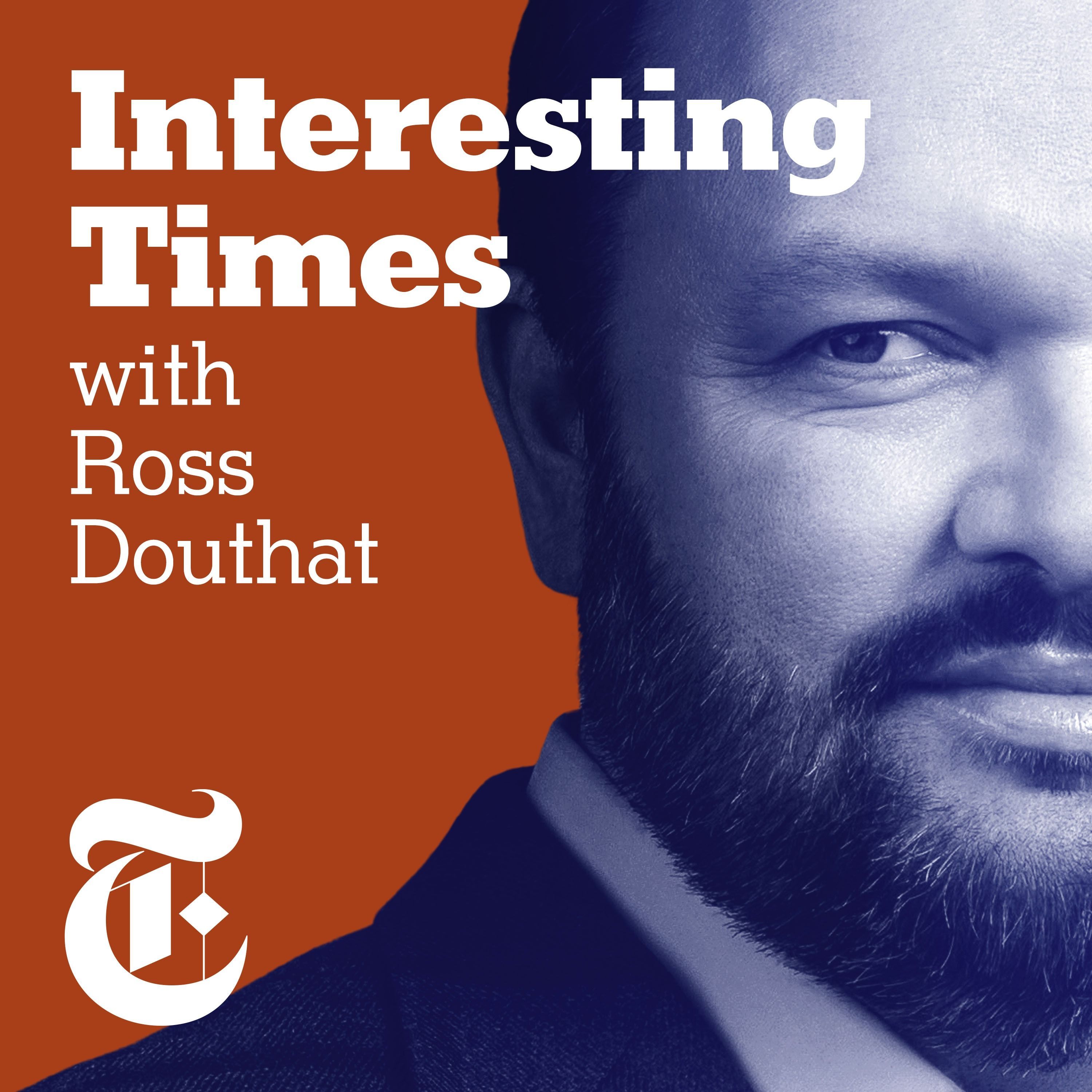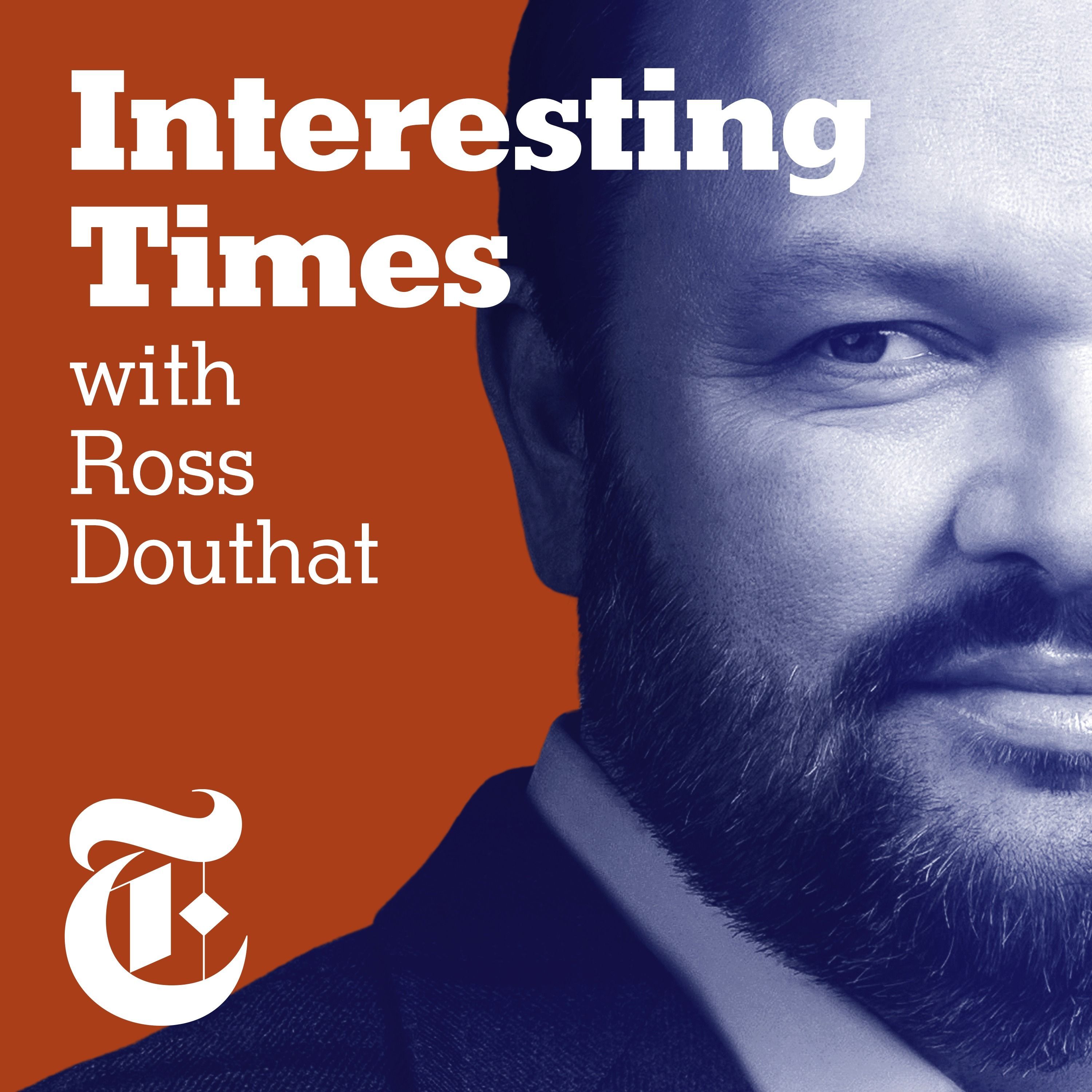
The first draft of our future. Mapping the new world order through interviews and conversations. Every Thursday, from New York Times Opinion. Subscribe today at nytimes.com/podcasts or on Apple Podcasts and Spotify. You can also subscribe via your favorite podcast app here https://www.nytimes.com/activate-access/audio?source=podcatcher. For more podcasts and narrated articles, download The New York Times app at nytimes.com/app.
Alle Folgen
Anthropic's Chief on A.I.: ‘We Don’t Know if the Models Are Conscious’
A.I. is evolving fast, and humanity is falling behind. Dario Amodei, the chief executive of Anthropic, has warned about the potential benefits — and real dangers — linked to the speed of that progress. As one of the lords of this technology, is he on the side of the human race? 01:37 - The promise and optimism of A.I.12:59 - White collar "bloodbaths"25:09 - Robotics and physical labor30:16 - The first “dangerous” scenario42:22 - What if it goes rogue?48:01 - Claude’s constitution(A full transcript of this episode is available on the Times website.) Thoughts? Email us at interestingtimes@nytimes.com. Please subscribe to our YouTube Channel, Interesting Times with Ross Douthat. Subscribe today at nytimes.com/podcasts or on Apple Podcasts and Spotify. You can also subscribe via your favorite podcast app here https://www.nytimes.com/activate-access/audio?source=podcatcher. For more podcasts and narrated articles, download The New York Times app at nytimes.com/app. Hosted by Simplecast, an AdsWizz company. See pcm.adswizz.com for information about our collection and use of personal data for advertising.

Why Ending Roe Wasn’t Enough for the Pro-Life Movement
Nearly four years after Roe v. Wade was overturned, where is the pro-life movement setting its sights? That’s what I wanted to know from the activist Lila Rose. We spoke last month in front of a live audience at the Catholic University of America. We debated whether her cause was prepared for the fall of Roe and whether abortion still matters at all to the right. 01:55 - Live Action and undercover activism05:53 - Pro-Life 101 and S.L.E.D.13:36 - “The mistake of feminism”17:02 - Pro-family policy22:47 - The political landscape after Roe 42:35 - The pro-life movement beyond politics47:39 - The medical “zone of uncertainty”53:53 - Why should women be pro-life?(A full transcript of this episode is available on the Times website.) Thoughts? Email us at interestingtimes@nytimes.com. Please subscribe to our YouTube Channel, Interesting Times with Ross Douthat. Subscribe today at nytimes.com/podcasts or on Apple Podcasts and Spotify. You can also subscribe via your favorite podcast app here https://www.nytimes.com/activate-access/audio?source=podcatcher. For more podcasts and narrated articles, download The New York Times app at nytimes.com/app. Hosted by Simplecast, an AdsWizz company. See pcm.adswizz.com for information about our collection and use of personal data for advertising.
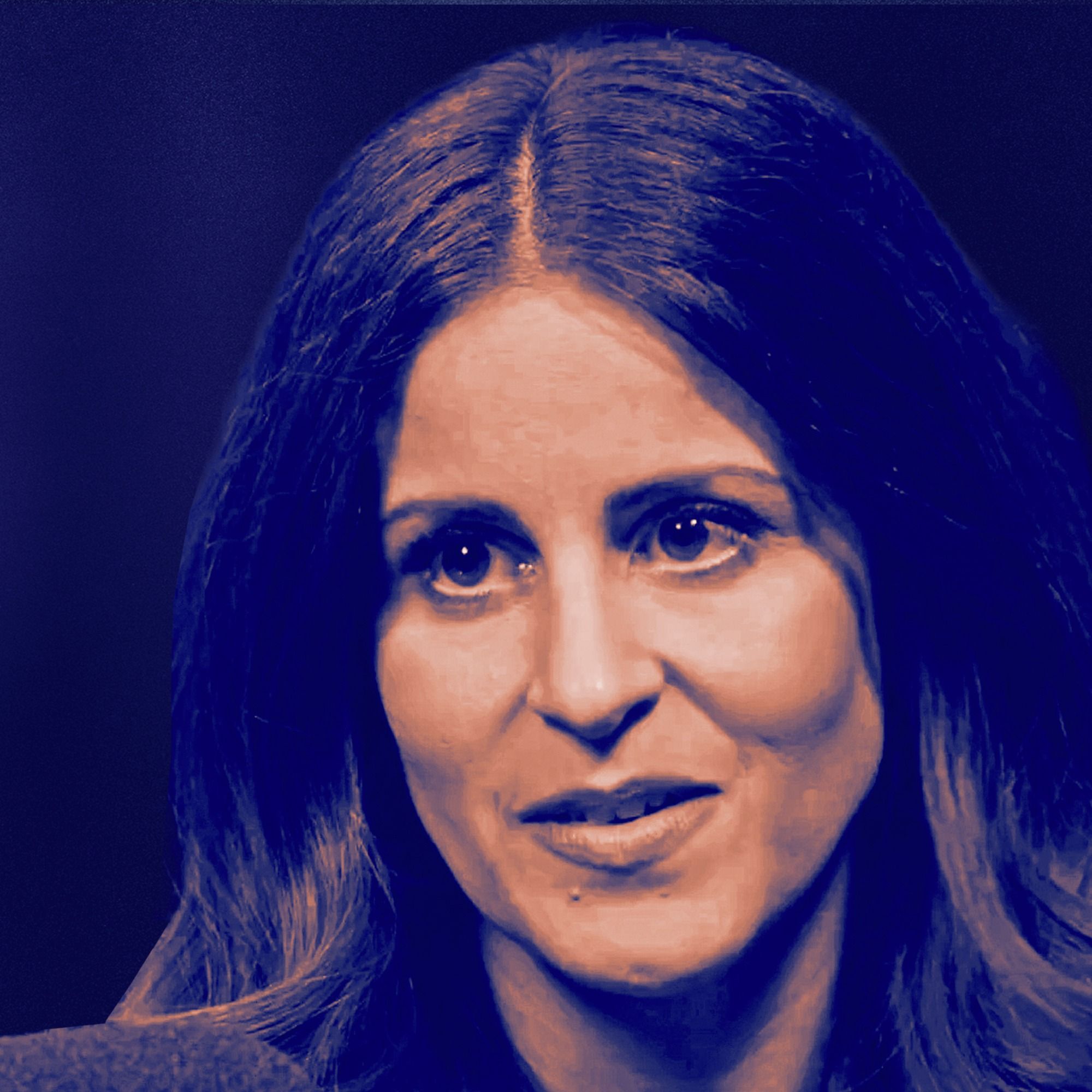
‘Trump Has Lost the Country’
I want to say something that few conservatives will admit right now: Donald Trump has lost the country. The coalition he assembled to defeat Kamala Harris has evaporated, and his aggressive agenda — never mind his legacy — won’t survive if Republicans can’t win the next election. Thoughts? Email us at interestingtimes@nytimes.com. Please subscribe to our YouTube Channel, Interesting Times with Ross Douthat. Subscribe today at nytimes.com/podcasts or on Apple Podcasts and Spotify. You can also subscribe via your favorite podcast app here https://www.nytimes.com/activate-access/audio?source=podcatcher. For more podcasts and narrated articles, download The New York Times app at nytimes.com/app. Hosted by Simplecast, an AdsWizz company. See pcm.adswizz.com for information about our collection and use of personal data for advertising.

A Plan to Restore Trust in Science From a ‘Fringe Epidemiologist’
If you want to understand how Robert F. Kennedy Jr. became the face of American public health, you have to go back to the Covid era. Medical authorities spoke with certainty: Trust the science. Don’t listen to skeptics. But a lot of people stopped trusting experts entirely when outsiders got some things right and the establishment got some things wrong. Now those outsiders are in charge, like my guest this week. Dr. Jay Bhattacharya is the director of the National Institutes of Health. I wanted to know: Can an outsider restore trust in public health institutions without undermining trust even more? 02:11 - How the “fringe epidemiologist” came to be08:18 - What went wrong while “crushing COVID-19”15:18 - “The responsibility of public health leaders”28:42 - Reforming public health and the NIH42:52 - Three areas of controversy plaguing public health1:00:52 - Success metrics(A full transcript of this episode is available on the Times website.) Thoughts? Email us at interestingtimes@nytimes.com. Please subscribe to our YouTube Channel, Interesting Times with Ross Douthat. Subscribe today at nytimes.com/podcasts or on Apple Podcasts and Spotify. You can also subscribe via your favorite podcast app here https://www.nytimes.com/activate-access/audio?source=podcatcher. For more podcasts and narrated articles, download The New York Times app at nytimes.com/app. Hosted by Simplecast, an AdsWizz company. See pcm.adswizz.com for information about our collection and use of personal data for advertising.

Jamelle Bouie and I Debate Trump’s Failing Grade
President Trump’s aggressive return to the White House has been disruptive in ways that will continue to reshape American — and global — governance and politics for decades. At a live event with the Library Foundation of Los Angeles, I joined my colleague Jamelle Bouie and our boss, the Opinion editor, Kathleen Kingsbury, to break down the first year of Trump 2.0. This conversation originally aired as an episode of “The Opinions.” (A full transcript of this episode is available on the Times website.) Thoughts? Email us at interestingtimes@nytimes.com. Please subscribe to our YouTube Channel, Interesting Times with Ross Douthat. Subscribe today at nytimes.com/podcasts or on Apple Podcasts and Spotify. You can also subscribe via your favorite podcast app here https://www.nytimes.com/activate-access/audio?source=podcatcher. For more podcasts and narrated articles, download The New York Times app at nytimes.com/app. Hosted by Simplecast, an AdsWizz company. See pcm.adswizz.com for information about our collection and use of personal data for advertising.

No, Young Men Are Not Returning to Church
Something surprising is happening to religious belief in America: It’s no longer trending downward. Are Americans becoming more religious? On this episode of “Interesting Times,” Ross sits down with the demographer and former pastor Ryan Burge to discuss the myths and realities of religious revival and debate whether the future belongs to ortho bros or Pagans. 01:32 - A new era of American religion08:19 - The shifting gender balance in religion13:38 - Class, education and social trust18:48 - Tarot, astrology, and UFOs: Post-Christian spirituality22:40 - The decline of the Seven Sisters28:27 - Politics in the pews40:29 - The religious and political America of 2050(A full transcript of this episode is available on the Times website.) Thoughts? Email us at interestingtimes@nytimes.com. Please subscribe to our YouTube Channel, Interesting Times with Ross Douthat. Subscribe today at nytimes.com/podcasts or on Apple Podcasts and Spotify. You can also subscribe via your favorite podcast app here https://www.nytimes.com/activate-access/audio?source=podcatcher. For more podcasts and narrated articles, download The New York Times app at nytimes.com/app. Hosted by Simplecast, an AdsWizz company. See pcm.adswizz.com for information about our collection and use of personal data for advertising.

Minneapolis Feels ‘Like Being in a Civil War’
Can cellphone cameras and whistles impede President Trump’s immigration policy? On this week’s episode of “Interesting Times,” Ross speaks with Francisco Segovia, the executive director of a Minneapolis-based nonprofit on the front lines of anti-ICE activism, about how his organization is training citizens to become constitutional observers. “It’s your right to video record what your government is doing,” he says. Ross asks if there’s any enforcement he’d accept. 2:56 Current dynamics on the ground in Minneapolis5:03 Communities Organizing Power and Action for Latinos (COPAL)6:53 Francisco Segovia's story14:26 What is a constitutional observer? 22:27 Reflections on Renee Good28:59 Training efforts to try and keep protesters safe34:42 What kind of immigration enforcement is legitimate? Hey, Los Angeles! Come see Ross in conversation with the columnist Jamelle Bouie and the editor of New York Times Opinion, Katie Kingsbury, on Tuesday, Jan. 20. They’ll take stock of the first year of Trump’s second term and debate the administration’s biggest actions so far and what it all means for our country. Get tickets here while they’re still available. Subscribe today at nytimes.com/podcasts or on Apple Podcasts and Spotify. You can also subscribe via your favorite podcast app here https://www.nytimes.com/activate-access/audio?source=podcatcher. For more podcasts and narrated articles, download The New York Times app at nytimes.com/app. Hosted by Simplecast, an AdsWizz company. See pcm.adswizz.com for information about our collection and use of personal data for advertising.

A Defense of U.S. Intervention in Venezuela
What should the U.S. do next in Venezuela? President Trump’s former Venezuela envoy Elliott Abrams wants the Trump administration to push harder for full regime change. But, he and Ross debate if a democratic transition is even possible based on the administration’s interests and past American efforts in the region. 01:15 - The case for regime change in Venezuela07:43 - The Trump administration’s current strategy14:06 - The Abrams Plan: An alternative approach17:50 - Oil blockades, sanctions, and military action28:54 - Past transitions in Latin America36:06 - The Reagan administration's “unsavory allies”43:57 - Trump’s priorities are a “mystery”(A full transcript of this episode is available on the Times website.) Thoughts? Email us at interestingtimes@nytimes.com. Please subscribe to our YouTube Channel, Interesting Times with Ross Douthat. Subscribe today at nytimes.com/podcasts or on Apple Podcasts and Spotify. You can also subscribe via your favorite podcast app here https://www.nytimes.com/activate-access/audio?source=podcatcher. For more podcasts and narrated articles, download The New York Times app at nytimes.com/app. Hosted by Simplecast, an AdsWizz company. See pcm.adswizz.com for information about our collection and use of personal data for advertising.
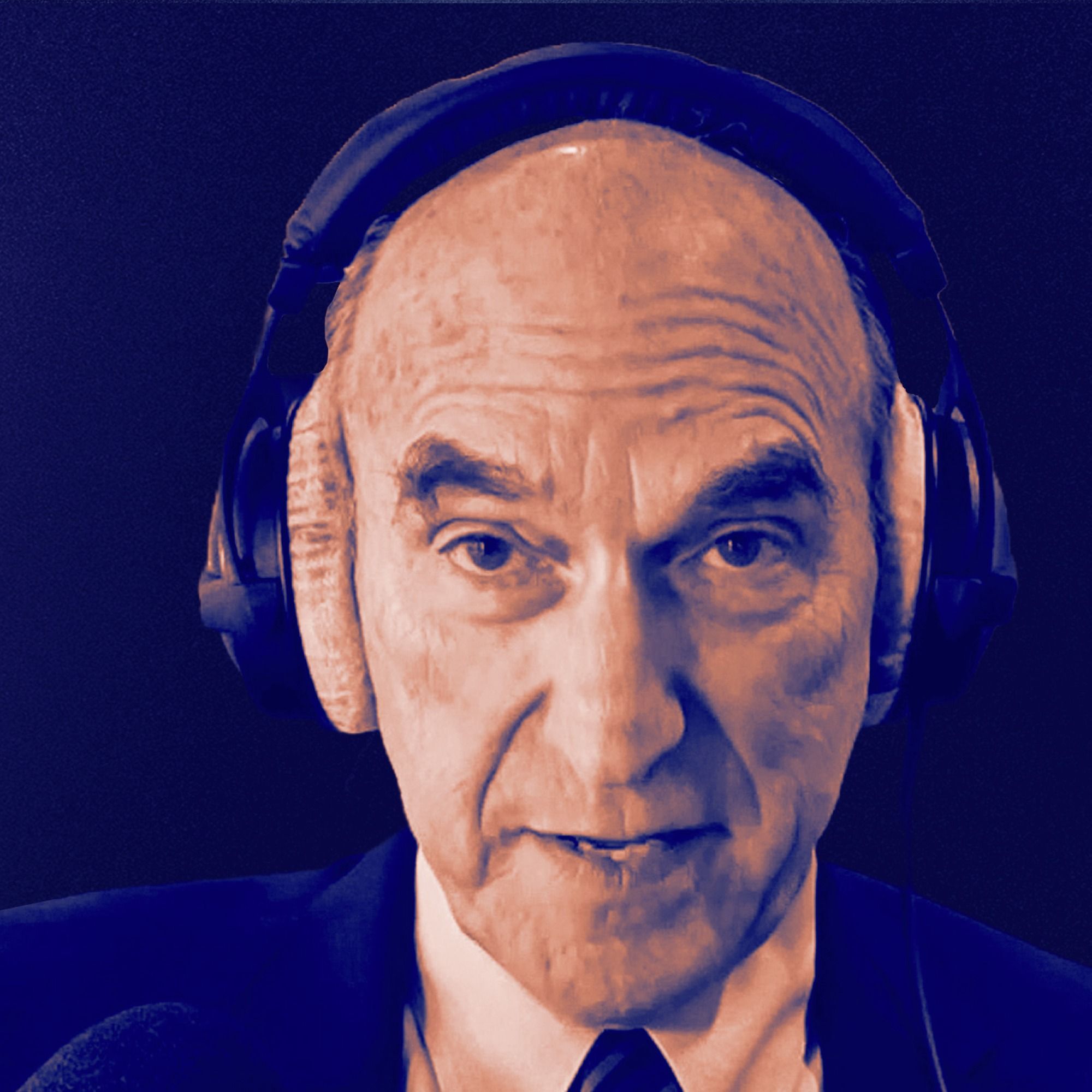
‘Making Sense With Sam Harris’ and Ross Douthat
This week we’re sharing an episode of ‘Making Sense With Sam Harris.’ The author and podcaster recently invited Ross on his show to discuss religion and politics. But they debated so much more: the existence of God, the mystery of the cosmos, the limits of consciousness, moral progress and even whether demons walk among us. Note: This recording has not been fact-checked by our team. (A full transcript of this episode is available on the Times website.) Thoughts? Email us at interestingtimes@nytimes.com. Please subscribe to our YouTube Channel, Interesting Times with Ross Douthat. Subscribe today at nytimes.com/podcasts or on Apple Podcasts and Spotify. You can also subscribe via your favorite podcast app here https://www.nytimes.com/activate-access/audio?source=podcatcher. For more podcasts and narrated articles, download The New York Times app at nytimes.com/app. Hosted by Simplecast, an AdsWizz company. See pcm.adswizz.com for information about our collection and use of personal data for advertising.
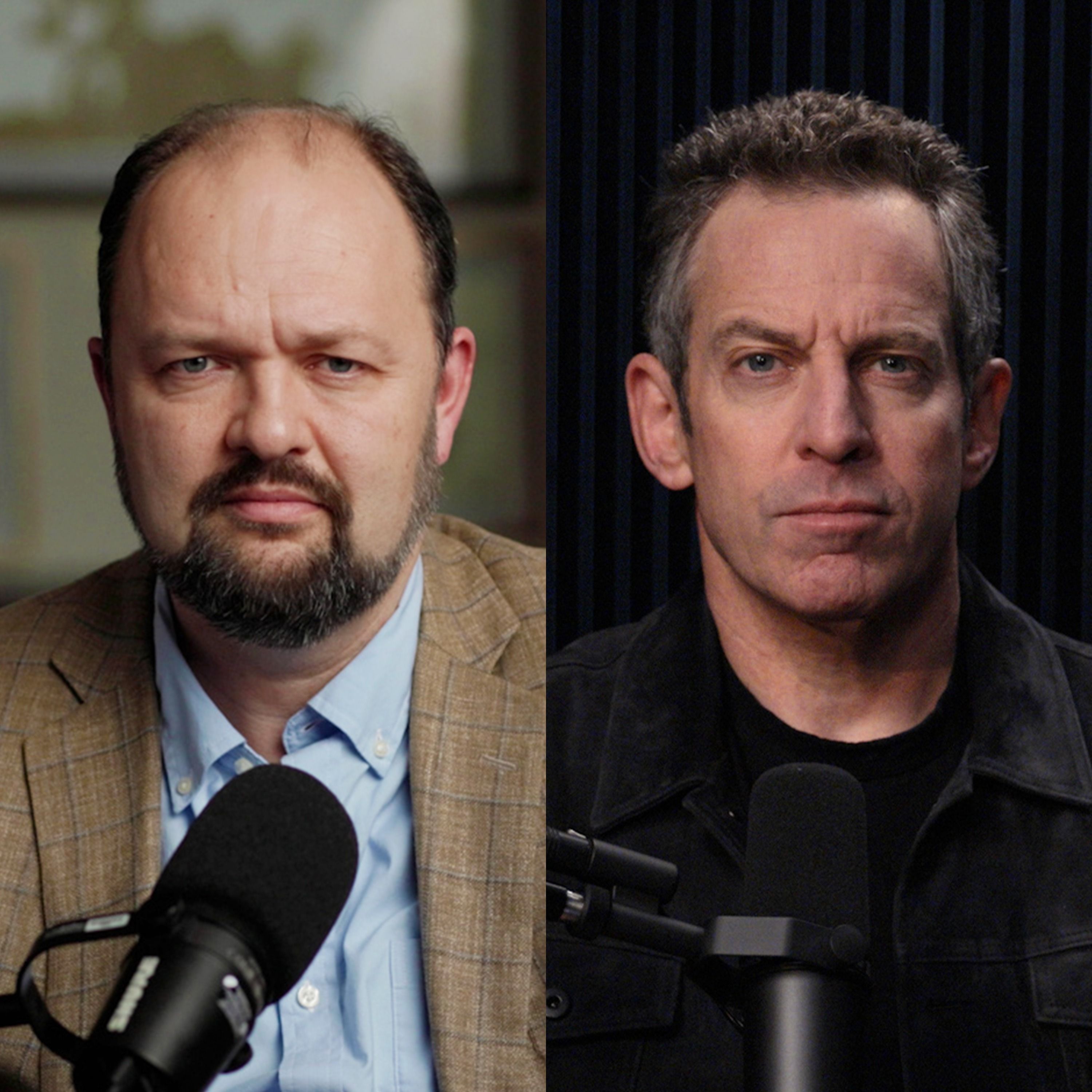
‘A Hard Time We Had of It’
Merry Christmas and happy holidays! This week Ross Douthat shares one of his favorite poems for the occasion, “The Journey of the Magi,” written by T.S. Eliot, to reflect on a year one might call “interesting.” See you next year! Subscribe today at nytimes.com/podcasts or on Apple Podcasts and Spotify. You can also subscribe via your favorite podcast app here https://www.nytimes.com/activate-access/audio?source=podcatcher. For more podcasts and narrated articles, download The New York Times app at nytimes.com/app. Hosted by Simplecast, an AdsWizz company. See pcm.adswizz.com for information about our collection and use of personal data for advertising.

Will It Ever Be Cool to Be Conservative?
Edgelords, Groypers, Sydney Sweeney’s jeans. American pop culture is having a right-wing moment. Ross recently joined the “Popcast” hosts Jon Caramanica and Joe Coscarelli to debate whether it will ever be truly cool to be conservative in Hollywood. (A full transcript of this episode is available on the Times website.) Thoughts? Email us at interestingtimes@nytimes.com. Please subscribe to our YouTube Channel, Interesting Times with Ross Douthat. Subscribe today at nytimes.com/podcasts or on Apple Podcasts and Spotify. You can also subscribe via your favorite podcast app here https://www.nytimes.com/activate-access/audio?source=podcatcher. For more podcasts and narrated articles, download The New York Times app at nytimes.com/app. Hosted by Simplecast, an AdsWizz company. See pcm.adswizz.com for information about our collection and use of personal data for advertising.
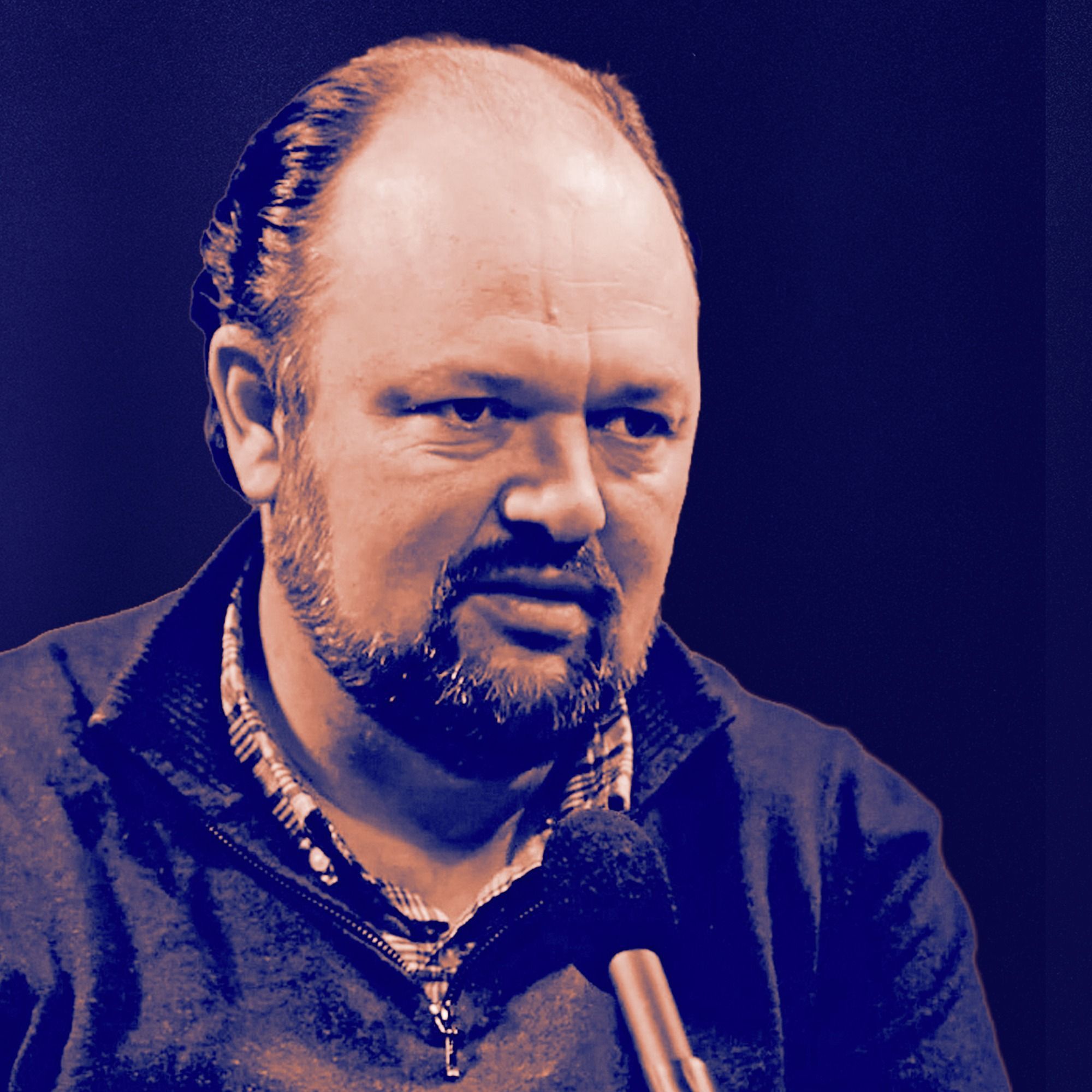
Is Anything Holding MAGA Together?
After Charlie Kirk’s assassination, conspiracy theories and divisions multiplied on the right. On this episode of “Interesting Times,” Ross talks to Andrew Kolvet, a Turning Point USA spokesperson and executive producer of “The Charlie Kirk Show,” about what happens to a movement when its charismatic leader is gone, what it’s like to be the target of conspiracy theories, and whether there are any issues unifying conservatism now. 01:32 - Andrew’s friendship with Charlie Kirk05:18 - Turning Point U.S.A.’s activism and impact11:16 - Charlie Kirk’s assassination and its aftermath18:42 - The divisions on the right start with conspiracy theories 38:28 - “Can the right hold together on Israel?”41:19 - Stress-testing the cohesion on the right56:08 - The Erika Kirk/Trump contrast(A full transcript of this episode is available on the Times website.) Thoughts? Email us at interestingtimes@nytimes.com. Please subscribe to our YouTube Channel, Interesting Times with Ross Douthat. Subscribe today at nytimes.com/podcasts or on Apple Podcasts and Spotify. You can also subscribe via your favorite podcast app here https://www.nytimes.com/activate-access/audio?source=podcatcher. For more podcasts and narrated articles, download The New York Times app at nytimes.com/app. Hosted by Simplecast, an AdsWizz company. See pcm.adswizz.com for information about our collection and use of personal data for advertising.

The Shifting Politics of Transgender Rights
The transgender rights movement in America appeared to be gaining momentum. But after suffering a big loss before the Supreme Court in June and facing a shift in public opinion, where does the fight go now? On this episode of “Interesting Times,” Ross is joined by Chase Strangio, a transgender rights activist and a lawyer with the American Civil Liberties Union, to discuss strategy in the courtroom and in the court of public opinion — as well as broader philosophical questions about transgender identity. 02:15 - Bostock vs. Clayton County08:30 - United States v. Skrmetti22:57 - Defining sex, gender identity and transgender identity32:52 - Chase talks about “coming home”40:42 - Healthcare for transgender youth is changing56:58 - Sports and transgender athletes1:07:49 - Coexistence within the debate(A full transcript of this episode is available on the Times website.) Thoughts? Email us at interestingtimes@nytimes.com. Please subscribe to our YouTube Channel, Interesting Times with Ross Douthat. Subscribe today at nytimes.com/podcasts or on Apple Podcasts and Spotify. You can also subscribe via your favorite podcast app here https://www.nytimes.com/activate-access/audio?source=podcatcher. For more podcasts and narrated articles, download The New York Times app at nytimes.com/app. Hosted by Simplecast, an AdsWizz company. See pcm.adswizz.com for information about our collection and use of personal data for advertising.

He Has a Plan for the Left. It Might Involve Overthrowing the Constitution.
Happy Thanksgiving! If you’re dreading your family’s impending political feuds over turkey and dinner rolls, we’re here to share an episode that just might help guide you. In August, Osita Nwanevu, a progressive and the author of “The Right of the People: Democracy and the Case for a New American Founding,” joined Ross for a respectful debate about how we should be interrogating the democratic system the country is built on — without yelling or threats. 5:21 - What's wrong with our democracy? 10:43 - Our undemocratic founding 18:36 - The case for more U.S. states and a new constitution25:27 - Where economic reform fits into this problem 30:54 - Does Trump represent the will of the people?38:50- What Trump’s presidency says about democracy42:06 - The elusive Bernie Sanders moment 48:05 - The mystical element of our politics(A full transcript of this episode is available on the Times website.) Thoughts? Email us at interestingtimes@nytimes.com. Please subscribe to our YouTube Channel, Interesting Times with Ross Douthat. Subscribe today at nytimes.com/podcasts or on Apple Podcasts and Spotify. You can also subscribe via your favorite podcast app here https://www.nytimes.com/activate-access/audio?source=podcatcher. For more podcasts and narrated articles, download The New York Times app at nytimes.com/app. Hosted by Simplecast, an AdsWizz company. See pcm.adswizz.com for information about our collection and use of personal data for advertising.
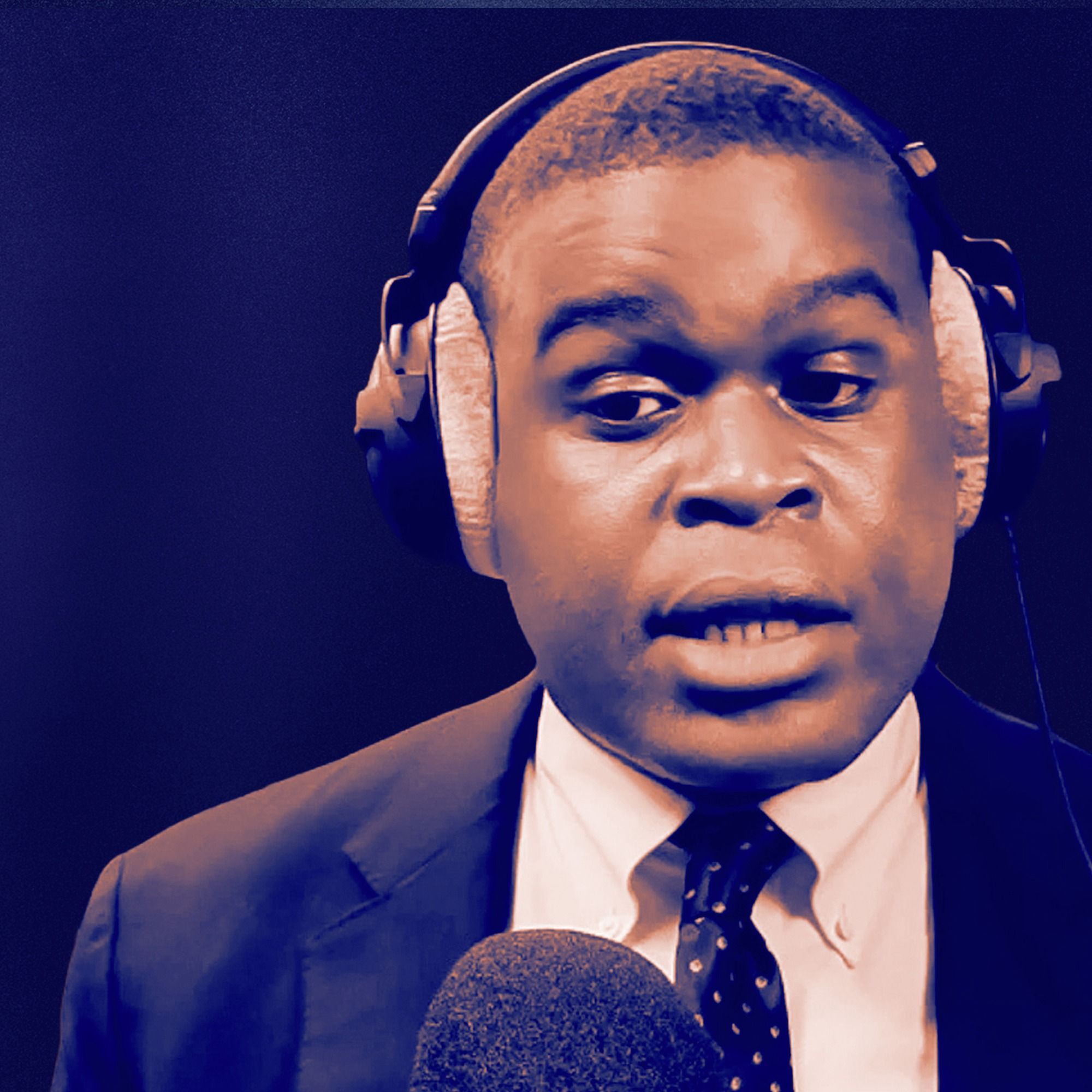
It’s Deeper Than Nick Fuentes
Is antisemitism the next chapter of “America First”? Many see the appeal of antisemitic ideas among younger conservatives as a natural consequence of a hard right nationalist turn. Yoram Hazony — a prominent advocate of nationalist politics — is trying to keep that from happening. He joins Ross to discuss the root of right-wing antisemitism and what right-wing leaders should do about it. 02:12 - Just how bad is antisemitism on the right?06:24 - The generational and theological rebellion14:35 - “The virtues of nationalism” and an American cultural center25:33 - Foreign policy under nationalism29:59 - The U.S. - Israel Relationship and antisemitism45:59 - What can nationalist leaders do about antisemitism(A full transcript of this episode is available on the Times website.) Thoughts? Email us at interestingtimes@nytimes.com. Please subscribe to our YouTube Channel, Interesting Times with Ross Douthat Subscribe today at nytimes.com/podcasts or on Apple Podcasts and Spotify. You can also subscribe via your favorite podcast app here https://www.nytimes.com/activate-access/audio?source=podcatcher. For more podcasts and narrated articles, download The New York Times app at nytimes.com/app. Hosted by Simplecast, an AdsWizz company. See pcm.adswizz.com for information about our collection and use of personal data for advertising.

‘This Is the War Against Human Nature’
“There’s something very spiritually dark about the internet,” the author Paul Kingsnorth tells Ross Douthat in this week’s episode of “Interesting Times.” Kingsnorth warns against the expanding presence of technology in our lives and declares it “the war against human nature.” 00:06:10 - Defining "The Machine"00:08:03 - Ecological vs. Spiritual Collapse00:15:03 - The Case for Modernity00:24:02 - The Four Ps of a Healthy Culture00:28:39 - Collapse, Revival, and The Internet00:34:05 - Thiel, Musk, and The Antichrist00:42:37 - The Choice in 'Alexandria'00:46:44 - How to Live Within The Machine(A full transcript of this episode is available on the Times website.) Thoughts? Email us at interestingtimes@nytimes.com. Please subscribe to our YouTube Channel, Interesting Times with Ross Douthat. Subscribe today at nytimes.com/podcasts or on Apple Podcasts and Spotify. You can also subscribe via your favorite podcast app here https://www.nytimes.com/activate-access/audio?source=podcatcher. For more podcasts and narrated articles, download The New York Times app at nytimes.com/app. Hosted by Simplecast, an AdsWizz company. See pcm.adswizz.com for information about our collection and use of personal data for advertising.

Did Liberal Feminism Ruin the Workplace?
Is society too feminine or not feminine enough? Two conservative writers, Helen Andrews and Leah Libresco Sargeant, disagree on the answer. They join Ross Douthat to debate whether the feminization of institutions led to wokeism and a greater divide between men and women. 01:33 “Wokeness is distinctively feminine.”06:17 - Has liberal feminism failed women?16:26 - The feminization of institutions20:47 - Defining feminine and masculine vices24:09 - Toxic femininity 39:09 - Defeminization in the workplace(A full transcript of this episode is available on the Times website.) Thoughts? Email us at interestingtimes@nytimes.com. Please subscribe to our YouTube Channel, Interesting Times with Ross Douthat. Subscribe today at nytimes.com/podcasts or on Apple Podcasts and Spotify. You can also subscribe via your favorite podcast app here https://www.nytimes.com/activate-access/audio?source=podcatcher. For more podcasts and narrated articles, download The New York Times app at nytimes.com/app. Hosted by Simplecast, an AdsWizz company. See pcm.adswizz.com for information about our collection and use of personal data for advertising.

Mamdani’s Victory Is Less Significant Than You Think
Does Zohran Mamdani’s win mean a new dawn for the Democratic Party? Not exactly, Ross Douthat argues. In this mini-episode of “Interesting Times,” Ross explains that the New York mayor’s office has historically been a “springboard to nowhere,” rather than a precursor for national politics. (A full transcript of this episode is available on the Times website.) Thoughts? Email us at interestingtimes@nytimes.com. Please subscribe to our YouTube Channel, Interesting Times with Ross Douthat. Subscribe today at nytimes.com/podcasts or on Apple Podcasts and Spotify. You can also subscribe via your favorite podcast app here https://www.nytimes.com/activate-access/audio?source=podcatcher. For more podcasts and narrated articles, download The New York Times app at nytimes.com/app. Hosted by Simplecast, an AdsWizz company. See pcm.adswizz.com for information about our collection and use of personal data for advertising.

What Palantir Sees
Who’s afraid of Palantir? The company’s chief technology officer, Shyam Sankar, joins Ross Douthat for a conversation about what the shadowy company actually does — and the thorny political and ethical questions it faces. They also discuss the new era of collaboration between Silicon Valley and the military, a personal project for Sankar, who was recently commissioned as a lieutenant colonel in the U.S. Army Reserve. 01:37 - So, what does Palantir do?07:45 - The “kill chain”13:27 - The tech company’s relationship with I.C.E.18:09 - What happens to privacy?25:30 - Palantir and Israel27:22 - Sankar’s personal military journey34:43 - Silicon Valley’s militarization43:09 - TITAN, A.I. and the “Iron Man” suit(A full transcript of this episode is available on the Times website.) Thoughts? Email us at interestingtimes@nytimes.com. Please subscribe to our YouTube Channel, Interesting Times with Ross Douthat. Subscribe today at nytimes.com/podcasts or on Apple Podcasts and Spotify. You can also subscribe via your favorite podcast app here https://www.nytimes.com/activate-access/audio?source=podcatcher. For more podcasts and narrated articles, download The New York Times app at nytimes.com/app. Hosted by Simplecast, an AdsWizz company. See pcm.adswizz.com for information about our collection and use of personal data for advertising.

Taylor Swift’s Trad Turn
Is Taylor Swift’s “The Life of a Showgirl” the soundtrack for the Trump era? Self-titled “conservative dad” Ross Douthat thinks so, and explains why in this mini-episode of “Interesting Times. Thoughts? Email us at interestingtimes@nytimes.com. Please subscribe to our YouTube Channel, Interesting Times with Ross Douthat. Subscribe today at nytimes.com/podcasts or on Apple Podcasts and Spotify. You can also subscribe via your favorite podcast app here https://www.nytimes.com/activate-access/audio?source=podcatcher. For more podcasts and narrated articles, download The New York Times app at nytimes.com/app. Hosted by Simplecast, an AdsWizz company. See pcm.adswizz.com for information about our collection and use of personal data for advertising.

The Next Economic Bubble Is Here
Is the artificial intelligence revolution keeping the entire economy afloat? This week on “Interesting Times,” Ross talks with Jason Furman, an economist from the Harvard Kennedy School and a contributing writer for Times Opinion, about how investors, policymakers and consumers should think about the boom — and potential bust — of the fastest growing segment of the American economy and look to past bubbles for answers. 01:12 - Okay, so are we in a bubble?08:51 - Historical comparisons of past bubbles12:45 - The case for an A.I. bubble22:07 - The case against an A.I. bubble29:44 - What if it bursts?34:15 - The economic health of the Trump administration45:08 - “I'm reasonably optimistic.”(A full transcript of this episode is available on the Times website.) Thoughts? Email us at interestingtimes@nytimes.com. Please subscribe to our YouTube Channel, Interesting Times with Ross Douthat. Subscribe today at nytimes.com/podcasts or on Apple Podcasts and Spotify. You can also subscribe via your favorite podcast app here https://www.nytimes.com/activate-access/audio?source=podcatcher. For more podcasts and narrated articles, download The New York Times app at nytimes.com/app. Hosted by Simplecast, an AdsWizz company. See pcm.adswizz.com for information about our collection and use of personal data for advertising.

Amy Coney Barrett Is Looking Beyond the Trump Era
Justice Amy Coney Barrett is playing the long game. In this week’s “Interesting Times,” she walks us through the current court’s most controversial rulings, why she believes that her originalist interpretations are resistant to ideological pressures and why she’s not comfortable thinking of herself as a cultural icon. 02:19 - Balancing the personal and the professional11:45 - The theory and practice of originalism18:00 - Why was Roe. v. Wade overruled?27:19 - Stare Decisis and Overruling Decisions35:29 - “Judges are human and judges are fallible.”42:49 - The Supreme Court is taking the long view53:20 - The Court's relationship with the executive branch(A full transcript of this episode is available on the Times website.) Thoughts? Email us at interestingtimes@nytimes.com. Please subscribe to our YouTube Channel, Interesting Times with Ross Douthat. Subscribe today at nytimes.com/podcasts or on Apple Podcasts and Spotify. You can also subscribe via your favorite podcast app here https://www.nytimes.com/activate-access/audio?source=podcatcher. For more podcasts and narrated articles, download The New York Times app at nytimes.com/app. Hosted by Simplecast, an AdsWizz company. See pcm.adswizz.com for information about our collection and use of personal data for advertising.

He Believes America Should Be a Theocracy. He Says His Influence Is Growing.
Evangelical pastor and self-proclaimed Christian nationalist Doug Wilson has been preaching for decades that America needs to reclaim its Puritan past. But in 2025, he believes he’s “significantly” more influential. Does that mean America is closer to Wilson’s goal of theocracy? In this episode, nothing is off limits — even Ross’s own salvation. 01:36 - Doug Wilson's vision for a Christian nation08:37 - Wilson’s ideal theocratic republic19:12 - Theocracy and religious diversity30:50 - Do women have rights in this new republic?36:59 - Christendom and slavery46:50 - How far does Wilson’s influence go in a “clown world”?59:54 - Calvinism activism and quietism(A full transcript of this episode is available on the Times website.) Thoughts? Email us at interestingtimes@nytimes.com. Please subscribe to our YouTube Channel, Interesting Times with Ross Douthat. Subscribe today at nytimes.com/podcasts or on Apple Podcasts and Spotify. You can also subscribe via your favorite podcast app here https://www.nytimes.com/activate-access/audio?source=podcatcher. For more podcasts and narrated articles, download The New York Times app at nytimes.com/app. Hosted by Simplecast, an AdsWizz company. See pcm.adswizz.com for information about our collection and use of personal data for advertising.
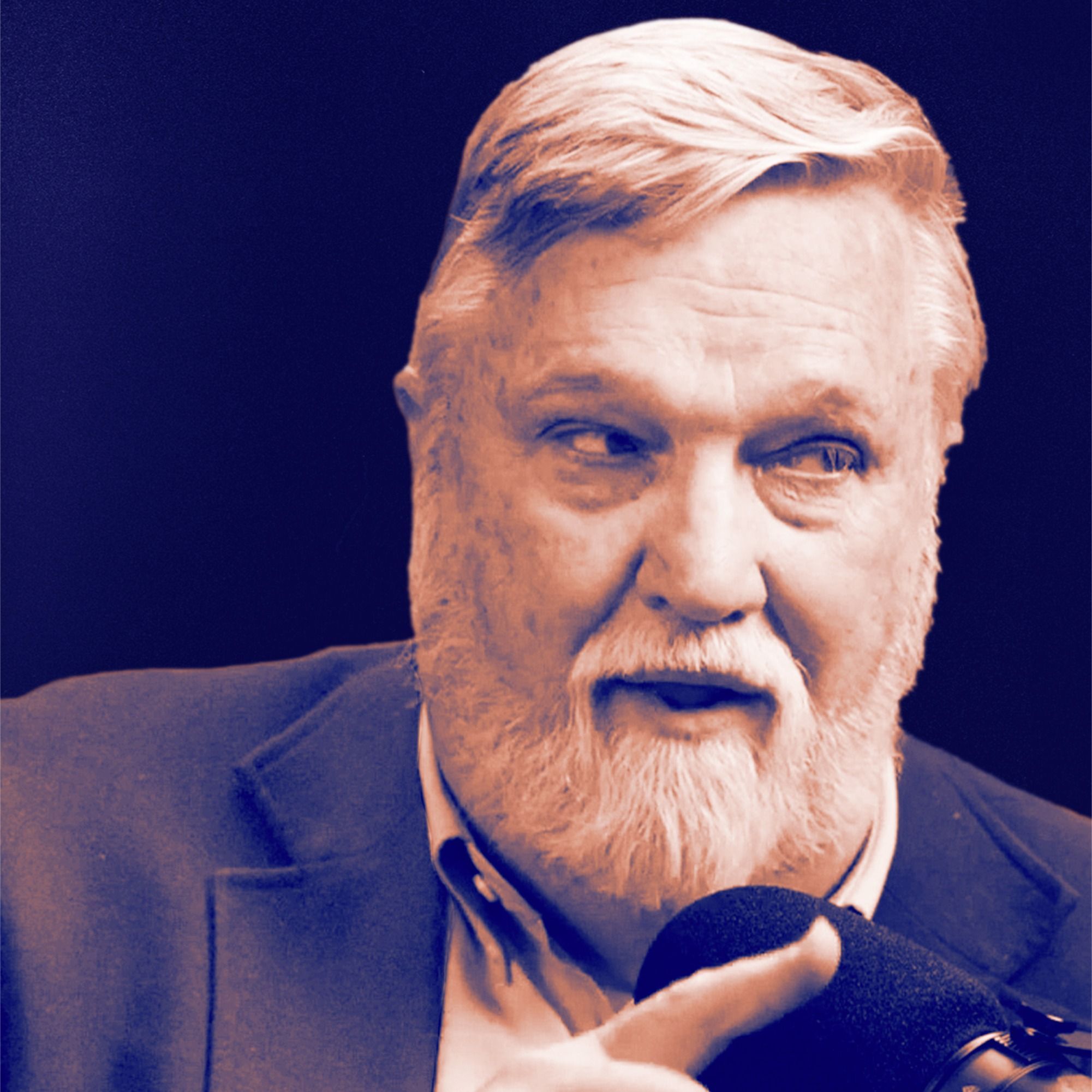
Hasan Piker Is Flirting With the Revolution
The Twitch and YouTube star Hasan Piker understands what pushes people to commit acts of political violence. But does that understanding tip over into appreciation? In this episode of “Interesting Times,” Ross Douthat and Piker debate why Piker’s post-liberal rhetoric attracts criticism from the right (and results in the occasional platform suspension) and why Americans’ changing attitudes on Israel feed his “revolutionary optimism.” 02:14 - Life during and after Twitch10:45 - The Hasan Piker worldview15:57 - “Revolutionary violence”20:13 - Is it hyperbole or incitement?30:48 - Hasan’s Luigi Mangione coverage41:35 - The danger in pushing taboos51:52 - Anti-Zionist advocacy and Hasan’s Turkish background1:08:00 - “Revolutionary optimism”Thoughts? Email us at interestingtimes@nytimes.com. Please subscribe to our YouTube Channel, Interesting Times with Ross Douthat. A full transcript of this episode is also available on the Times website. Subscribe today at nytimes.com/podcasts or on Apple Podcasts and Spotify. You can also subscribe via your favorite podcast app here https://www.nytimes.com/activate-access/audio?source=podcatcher. For more podcasts and narrated articles, download The New York Times app at nytimes.com/app. Hosted by Simplecast, an AdsWizz company. See pcm.adswizz.com for information about our collection and use of personal data for advertising.

The Grand Strategy Behind Trump’s Crackdown on Academia
What is wrong with higher education in America? According to many on the right, a lot. This week, Ross Douthat talks to May Mailman, the lawyer behind President Trump’s battles with Harvard and Columbia, about the administration’s assault on the Ivy League and why “a glorification of victimhood” is changing the relationship between universities and the federal government. 02:51 - What is a “culture of victimhood”?07:38 - Mailman’s political awakening11:44 - Social media and protest culture in the 2010s19:39 - The Trump administration’s strategy against universities26:33 - The financial levers that could ensure compliance36:09 - Ideological diversity and free speech47:56 - How legal is all this?52:25 - Higher education in 2030Thoughts? Email us at interestingtimes@nytimes.com. Please subscribe to our YouTube Channel, Interesting Times with Ross Douthat. A full transcript of this episode is also available on the Times website. Subscribe today at nytimes.com/podcasts or on Apple Podcasts and Spotify. You can also subscribe via your favorite podcast app here https://www.nytimes.com/activate-access/audio?source=podcatcher. For more podcasts and narrated articles, download The New York Times app at nytimes.com/app. Hosted by Simplecast, an AdsWizz company. See pcm.adswizz.com for information about our collection and use of personal data for advertising.

Ezra Klein Is Worried — but Not About a Radicalized Left
Ezra Klein argues that the left desperately needs a unifying project — for its own survival and for the sake of the country. In this episode of Ross Douthat’s “Interesting Times,” Ross and Ezra assess the aftermath of Charlie Kirk’s assassination and debate whether the left has taken a dark turn. 00:25 How liberalism became “uncertain and exhausted”08:37 The void in the Democratic Party12:21 Does progressive despair lead to radicalism?15:04 “Violence is contagious"19:24 Can the left be more malleable?28:20 The hippies, Peter Thiel and technology32:11 Does the American left need cosmic hope?41:59 A vision of the “good life”Thoughts? Email us at interestingtimes@nytimes.com. Please subscribe to our YouTube Channel, Interesting Times with Ross Douthat. A full transcript of this episode is also available on the Times website. Subscribe today at nytimes.com/podcasts or on Apple Podcasts and Spotify. You can also subscribe via your favorite podcast app here https://www.nytimes.com/activate-access/audio?source=podcatcher. For more podcasts and narrated articles, download The New York Times app at nytimes.com/app. Hosted by Simplecast, an AdsWizz company. See pcm.adswizz.com for information about our collection and use of personal data for advertising.
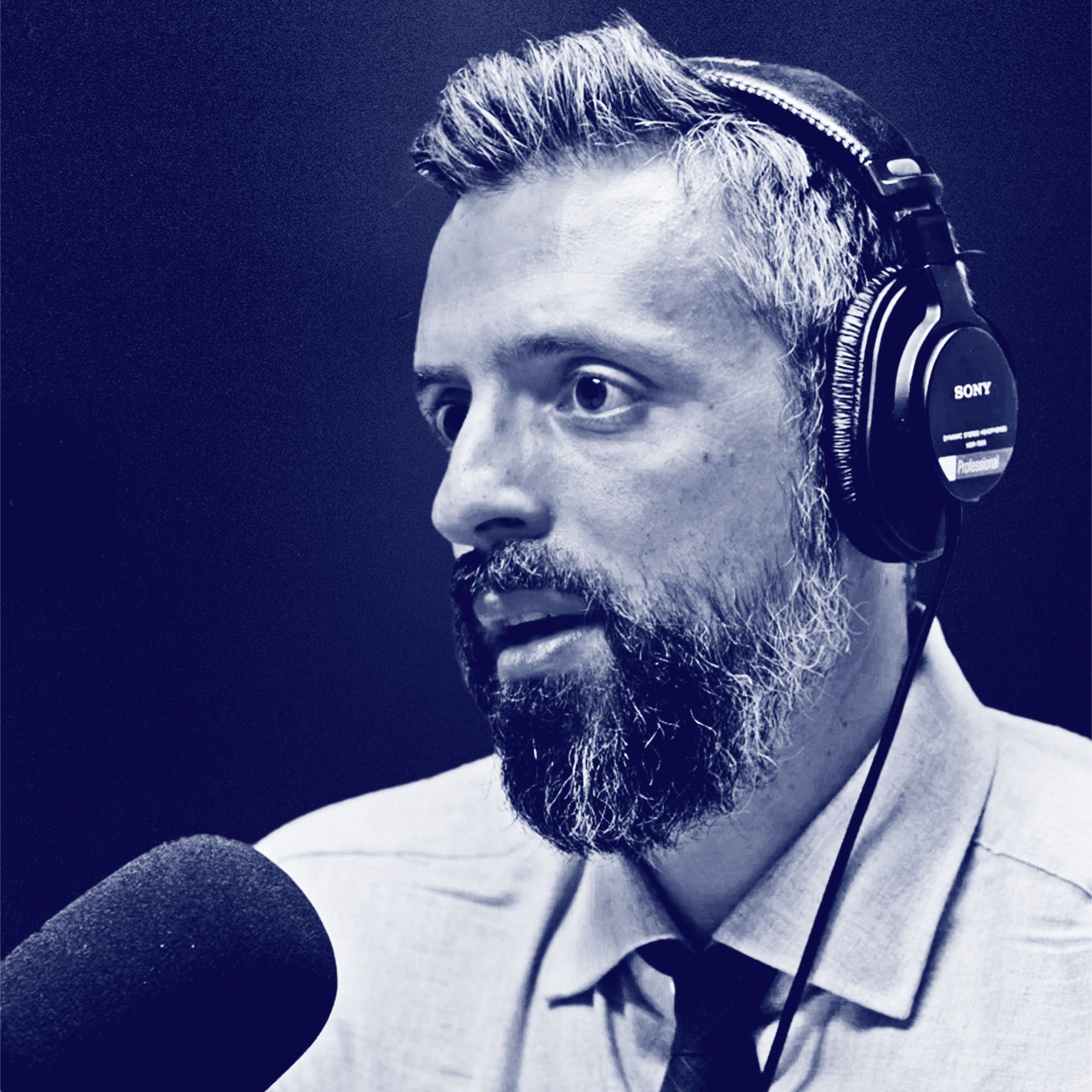
I was set to interview Charlie Kirk. Then he was assassinated.
In moments of political shock and horror, where can we turn? Ross was supposed to interview Charlie Kirk next month for the show and now offers his reflections on Kirk, his political movement and his assassination. (A full transcript of this episode is available on the Times website.) Thoughts? Email us at interestingtimes@nytimes.com. Please subscribe to our YouTube Channel, Interesting Times with Ross Douthat. Subscribe today at nytimes.com/podcasts or on Apple Podcasts and Spotify. You can also subscribe via your favorite podcast app here https://www.nytimes.com/activate-access/audio?source=podcatcher. For more podcasts and narrated articles, download The New York Times app at nytimes.com/app. Hosted by Simplecast, an AdsWizz company. See pcm.adswizz.com for information about our collection and use of personal data for advertising.
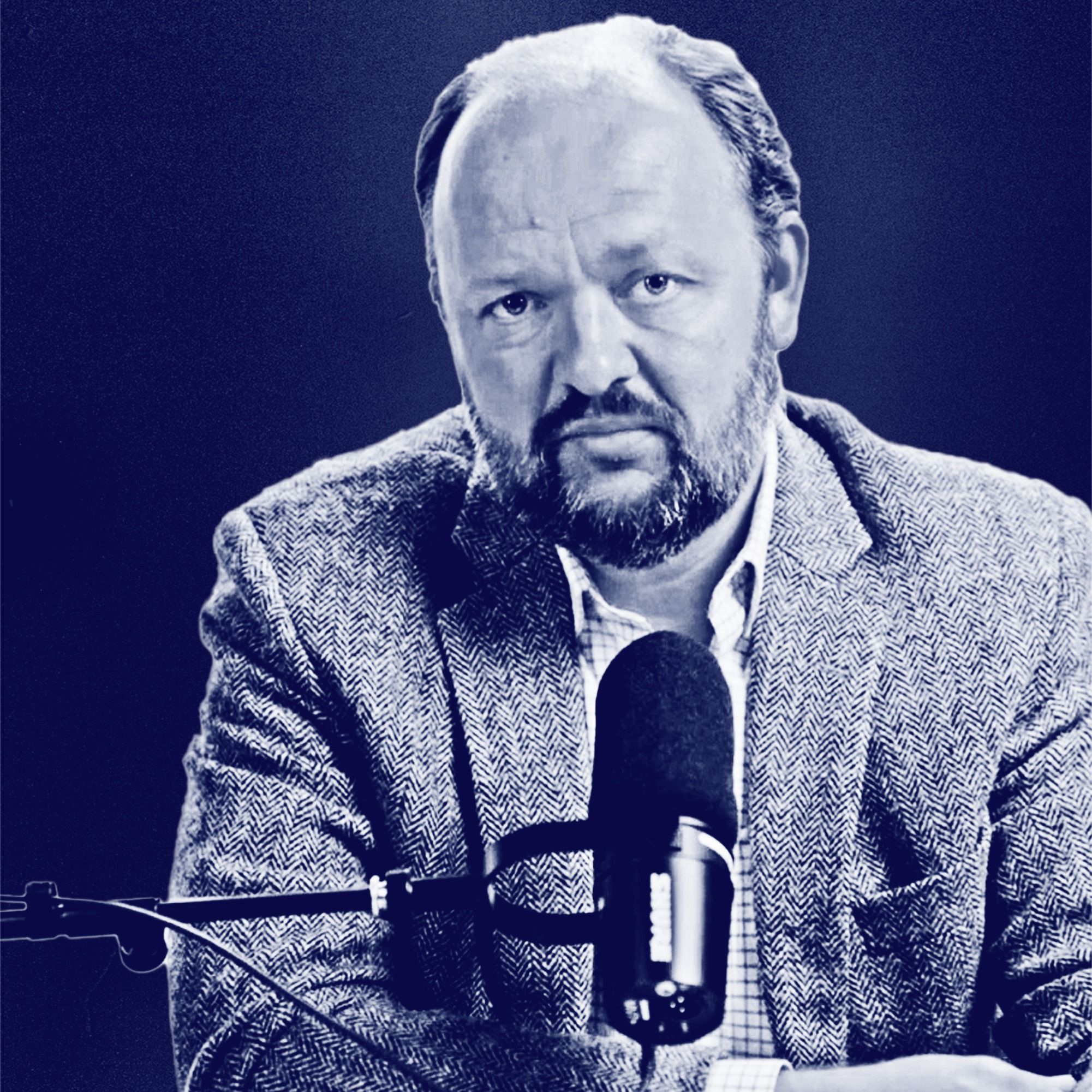
Does the Future Belong to China?
Is the United States still a worthy opponent for China? In this episode, Ross Douthat talks to Dan Wang, the author of “Breakneck: China’s Quest to Engineer the Future,” about the alarming speed at which China is able to build and could blow America out of the water. 01:44 - “A life full of ease and beauty”05:30 - Rule by engineers11:00 - China’s Technological Mastery16:04 - Is autocracy driving innovation?25:00 - What are the real stakes of the competition?35:47 - How could China fail? 53:00 - Advice for America(A full transcript of this episode is available on the Times website.) Thoughts? Email us at interestingtimes@nytimes.com. Please subscribe to our YouTube Channel, Interesting Times with Ross Douthat. Subscribe today at nytimes.com/podcasts or on Apple Podcasts and Spotify. You can also subscribe via your favorite podcast app here https://www.nytimes.com/activate-access/audio?source=podcatcher. For more podcasts and narrated articles, download The New York Times app at nytimes.com/app. Hosted by Simplecast, an AdsWizz company. See pcm.adswizz.com for information about our collection and use of personal data for advertising.

The MAGA Woman Dress Code
While “Interesting Times” is on vacation, we’re sharing a conversation from “The Opinions” between Meher Ahmad, an editor for Times Opinion, and the Opinion writer Jessica Grose. They talk about the aesthetics of MAGA women — think Kristi Noem and Nancy Mace — and what they signal about femininity and power within the Republican Party. Thoughts? Email us at interestingtimes@nytimes.com. Please subscribe to our YouTube Channel, Interesting Times with Ross Douthat. A full transcript of this episode is available on the Times website. Subscribe today at nytimes.com/podcasts or on Apple Podcasts and Spotify. You can also subscribe via your favorite podcast app here https://www.nytimes.com/activate-access/audio?source=podcatcher. For more podcasts and narrated articles, download The New York Times app at nytimes.com/app. Hosted by Simplecast, an AdsWizz company. See pcm.adswizz.com for information about our collection and use of personal data for advertising.
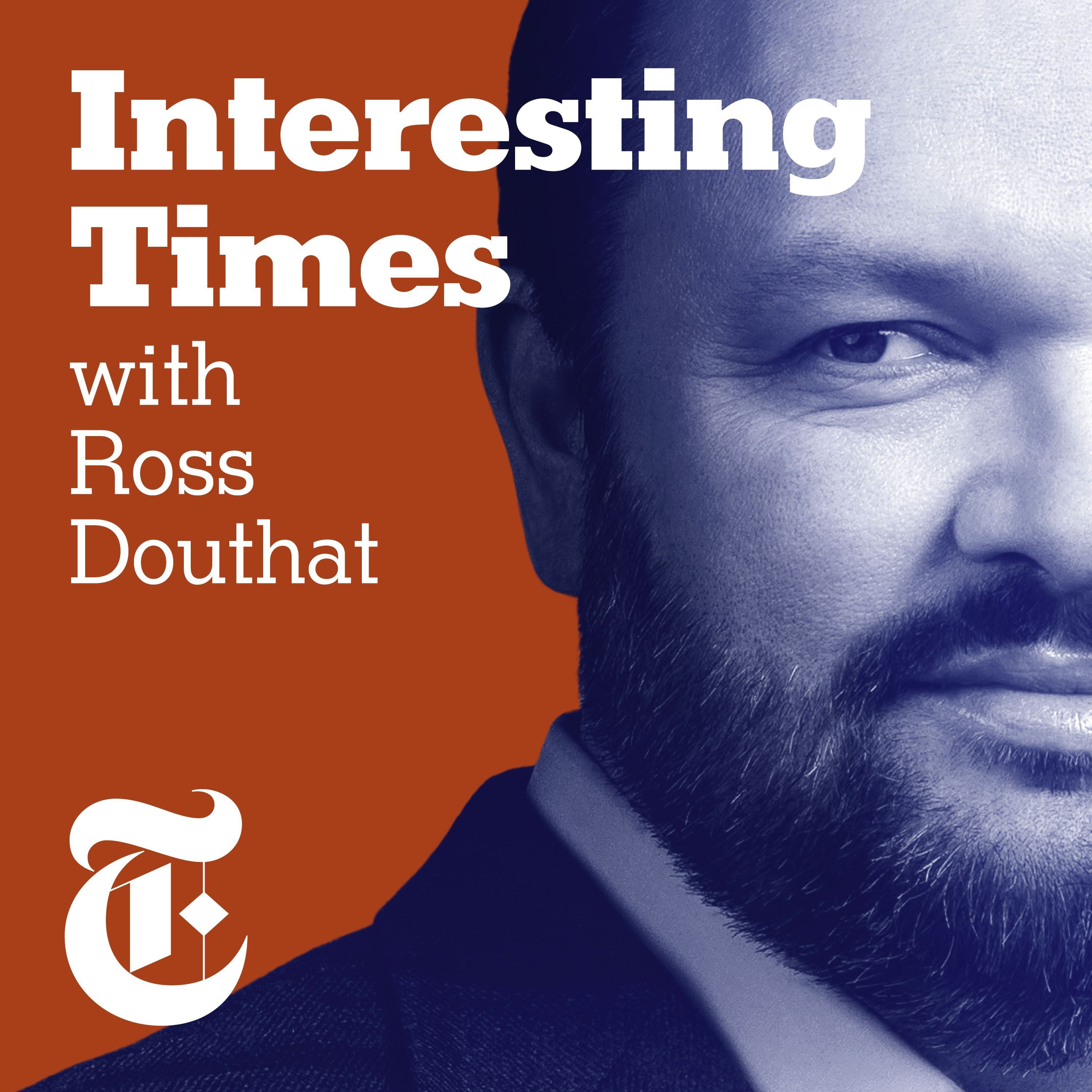
Ross and Ezra Klein Discuss Trump, Mysticism and Psychedelics
This week, we’re sharing a great conversation Ross had on “The Ezra Klein Show” this past spring. Ezra asks Ross about his most recent book, “Believe: Why Everyone Should Be Religious.” But along the way, they debate not just how religion influences the Trump administration but also their own lives. Come for their seeking and stay for their thoughts on ayahuasca and mystical encounters. 02:39 - Trump: man of destiny?19:55 - Political power, cruelty and Godliness36:13 - Religion and spirituality in the modern world42:53 - The mysteries of the universe…48:38 - Aliens! Fairies! (and some Catholic history)56:51 - Contending with uncertainty and evil1:05:24 - Psychedelic experiences1:20:56 - Official knowledge1:38:58 - Book recommendationsThoughts? Email us at interestingtimes@nytimes.com. Please subscribe to our YouTube Channel, Interesting Times with Ross Douthat. A full transcript of this episode is available on the Times website. Subscribe today at nytimes.com/podcasts or on Apple Podcasts and Spotify. You can also subscribe via your favorite podcast app here https://www.nytimes.com/activate-access/audio?source=podcatcher. For more podcasts and narrated articles, download The New York Times app at nytimes.com/app. Hosted by Simplecast, an AdsWizz company. See pcm.adswizz.com for information about our collection and use of personal data for advertising.

Abolish the Senate. End the Electoral College. Pack the Court.
For Democrats, President Trump’s victories have revealed the antidemocratic flaws at the core of our government. But could it be an opening for a constitutional revolution as the party searches for its next leader? This week, Ross explores what that revolution would entail with Osita Nwanevu, the author of the book, “The Right of the People: Democracy and the Case for a New American Founding.”3:46 - What's wrong with our democracy? 9:07 - Our undemocratic founding 17:00 - The case for more U.S. states and a new constitution23:52 - Where economic reform fits into this problem 29:26 - Does Trump represent the will of the people?37:17 - What Trump’s presidency says about democracy40:30 - The elusive Bernie Sanders moment 46:29 - The mystical element of our politics Thoughts? Email us at interestingtimes@nytimes.com. Please subscribe to our YouTube Channel, Interesting Times with Ross Douthat. A full transcript of this episode is available on the Times website. Subscribe today at nytimes.com/podcasts or on Apple Podcasts and Spotify. You can also subscribe via your favorite podcast app here https://www.nytimes.com/activate-access/audio?source=podcatcher. For more podcasts and narrated articles, download The New York Times app at nytimes.com/app. Hosted by Simplecast, an AdsWizz company. See pcm.adswizz.com for information about our collection and use of personal data for advertising.
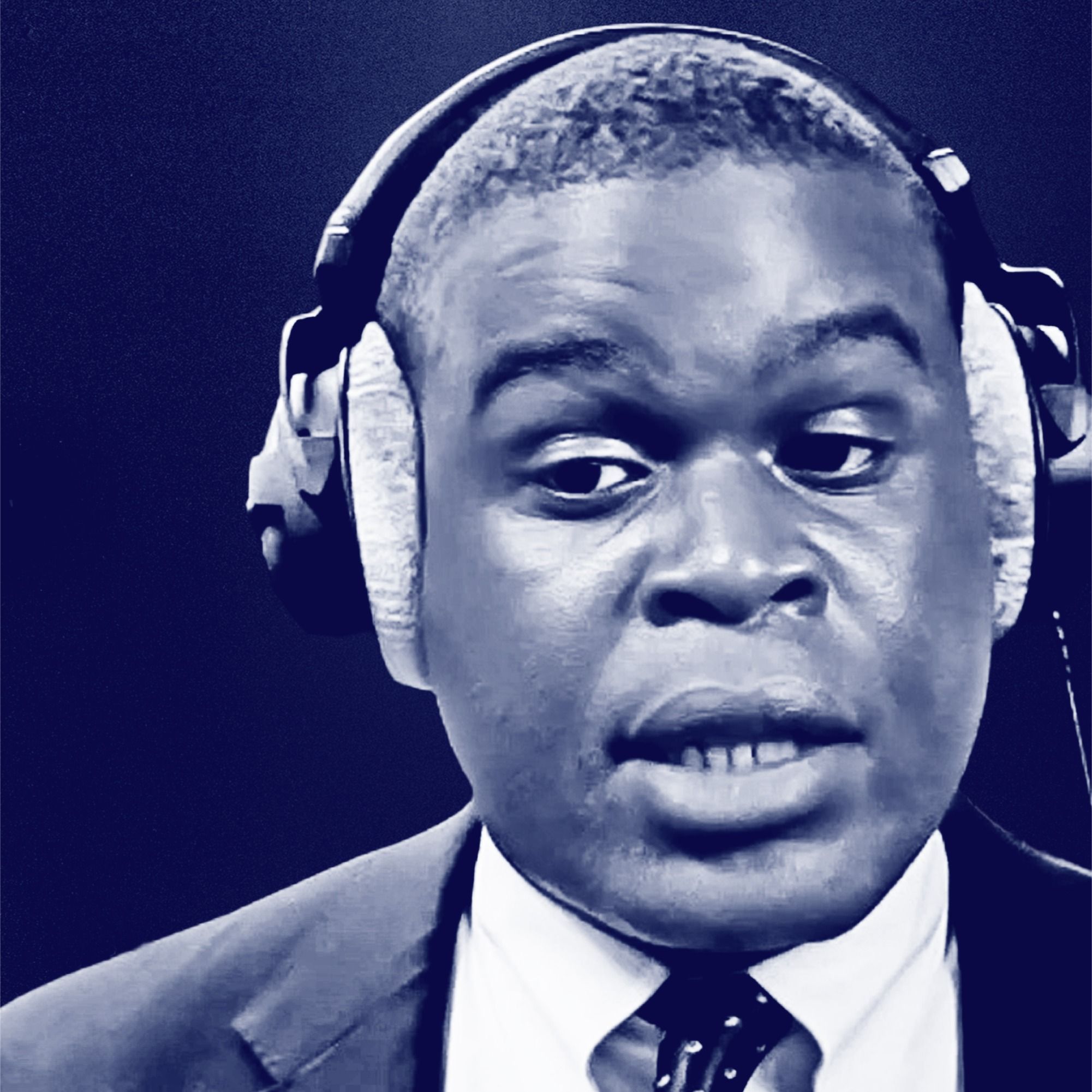
The Next Parenting Trend Starts Before Conception
Would you use an algorithm to select your embryos? Enter Orchid, a company that promises parents the ability to protect their future children through genetic testing for embryos before pregnancy. The founder, Noor Siddiqui, and Ross debate the scientific, moral and ethical implications of designing a “healthy” child and what we lose in separating reproduction from sex. 01:27 - Orchid’s vision04:59- The process and benefits17:20 - Noor explains why Orchid was developed22:00- Criticism and skepticism around genetic screening36:21 - Does IVF need to change?44:00 - “The moral status of the embryo”53:36 - How does this technology change us?(A full transcript of this episode is available on the Times website.) Thoughts? Email us at interestingtimes@nytimes.com. Please subscribe to our YouTube Channel, Interesting Times with Ross Douthat. Subscribe today at nytimes.com/podcasts or on Apple Podcasts and Spotify. You can also subscribe via your favorite podcast app here https://www.nytimes.com/activate-access/audio?source=podcatcher. For more podcasts and narrated articles, download The New York Times app at nytimes.com/app. Hosted by Simplecast, an AdsWizz company. See pcm.adswizz.com for information about our collection and use of personal data for advertising.
The DOGE Alum Asking if Foreign Aid Is America’s Problem
Does America have a moral obligation to the world? The former Department of Government Efficiency staffer Jeremy Lewin, now deputy administrator for the United States Agency for International Development, explains how he is implementing President Trump’s foreign aid philosophy and what it means for humanitarian assistance going forward. 01:59 - From the private sector to interviewing with Elon Musk09:18 - The rapid restructuring of U.S.A.I.D.19:44 - Lewin’s critiques of U.S.A.I.D.’s focus25:15 - The most controversial cuts: humanitarian aid 29:50 - America’s interests first, values-based interests second40:14 - What is the future vision for foreign aid?(A full transcript of this episode is available on the Times website.) Thoughts? Email us at interestingtimes@nytimes.com. Please subscribe to our YouTube Channel, Interesting Times with Ross Douthat. Subscribe today at nytimes.com/podcasts or on Apple Podcasts and Spotify. You can also subscribe via your favorite podcast app here https://www.nytimes.com/activate-access/audio?source=podcatcher. For more podcasts and narrated articles, download The New York Times app at nytimes.com/app. Hosted by Simplecast, an AdsWizz company. See pcm.adswizz.com for information about our collection and use of personal data for advertising.

What if the Government Believes in U.F.O.s More Than You Do?
U.F.O.s, fairies and abductions! This week, Ross talks to Diana Walsh Pasulka, a professor of religious studies, about how a deep dive into Catholic archives led her down a path to unravel the connections between religion, extraterrestrial encounters and government secrecy. 01:53 - How Pasulka’s religious studies led to the U.F.O. debate06:08 - Modern U.F.O. encounters and telepathic communication13:29 - What are the actual beliefs of the U.F.O. community?19:28 - Whistleblowers and government contradictions31:35 - Angels, demons and “actual things in the sky”45:38 - Disclosure52:51 - “Amazing.”(A full transcript of this episode is available on the Times website.) Thoughts? Email us at interestingtimes@nytimes.com. Please subscribe to our YouTube Channel, Interesting Times with Ross Douthat. Subscribe today at nytimes.com/podcasts or on Apple Podcasts and Spotify. You can also subscribe via your favorite podcast app here https://www.nytimes.com/activate-access/audio?source=podcatcher. For more podcasts and narrated articles, download The New York Times app at nytimes.com/app. Hosted by Simplecast, an AdsWizz company. See pcm.adswizz.com for information about our collection and use of personal data for advertising.

She Exposed Epstein, and Shares MAGA’s Anger
Julie K. Brown thinks Jeffrey Epstein didn’t act alone. On this episode of “Interesting Times,” Ross talks to Brown, the investigative reporter whose work ultimately led to Epstein’s re-arrest, about what the government could release that it hasn’t and how the story is bigger than Epstein. 2:32 - Brown's initial interest in the Epstein case5:26 - Discovering Epstein's crimes and the plea deal13:13 - Epstein's victims and the impact of Brown's reporting18:20 - Epstein's wealth and connections25:20 - Epstein's social circles35:01 - Certainty and unsolved mysteries45:25 - The role of government in the case51:04 - Trump and the political fallout(A full transcript of this episode is available on the Times website.) Thoughts? Email us at interestingtimes@nytimes.com. Please subscribe to our YouTube Channel, Interesting Times with Ross Douthat. Subscribe today at nytimes.com/podcasts or on Apple Podcasts and Spotify. You can also subscribe via your favorite podcast app here https://www.nytimes.com/activate-access/audio?source=podcatcher. For more podcasts and narrated articles, download The New York Times app at nytimes.com/app. Hosted by Simplecast, an AdsWizz company. See pcm.adswizz.com for information about our collection and use of personal data for advertising.
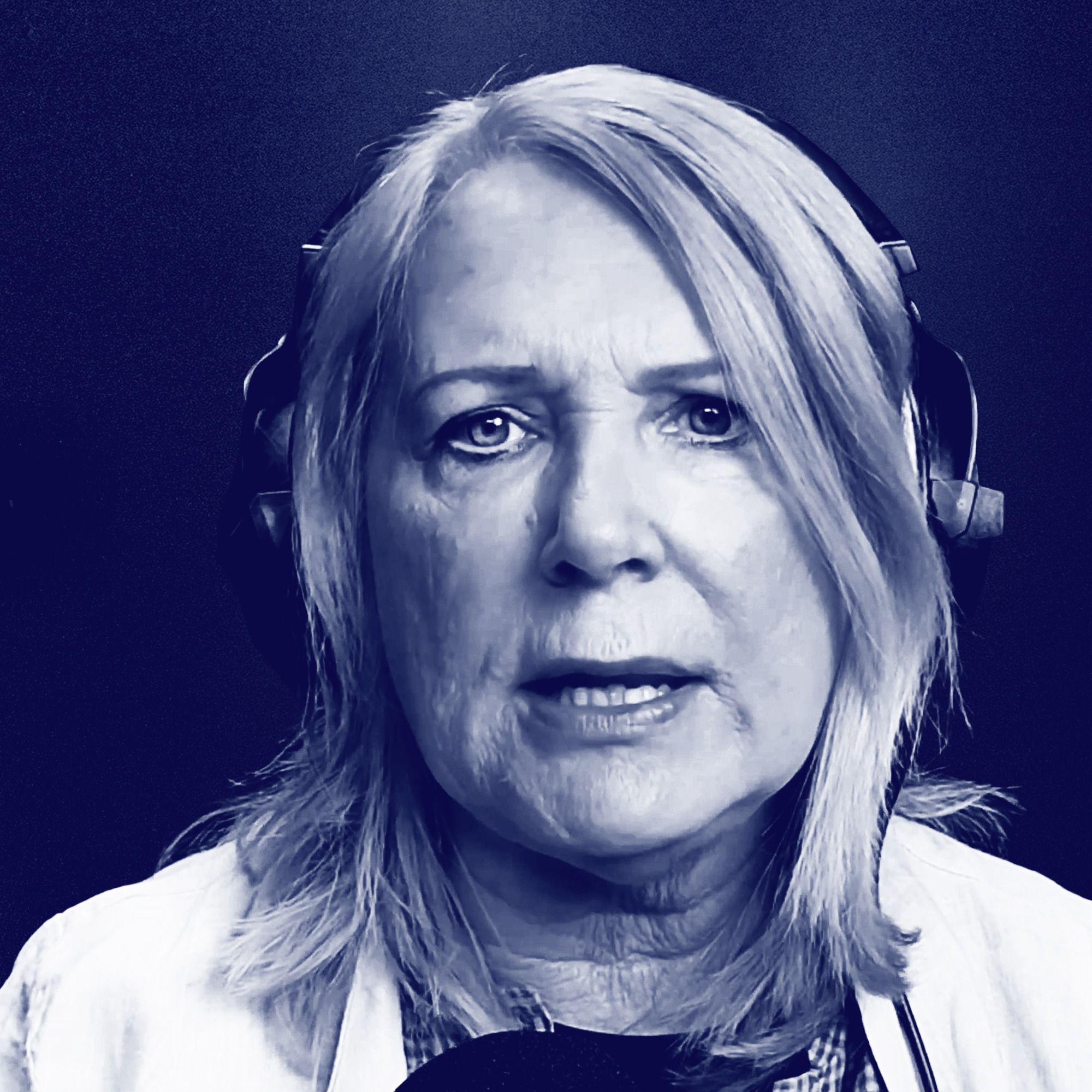
Is ‘Toxic Empathy’ Pulling Christians to the Left?
The conservative Christian podcaster Allie Beth Stuckey joins Ross on “Interesting Times” this week to explain why “toxic empathy” has a stranglehold on politics, whether evangelical Christians have a red line President Trump could cross and why her commentary has echoes of Phyllis Schlafly. 01:26 “The New Phyllis Schlafly”9:46 Untangling the web of Evangelical Protestants15:50 Female authority in the church22:12 What is “toxic empathy”?30:55 Toxic empathy and cruelty in American politics40:19 Do conservative christians have a red line?57:24 “The mushy middle”(A full transcript of this episode is available on the Times website.) Thoughts? Email us at interestingtimes@nytimes.com. Subscribe today at nytimes.com/podcasts or on Apple Podcasts and Spotify. You can also subscribe via your favorite podcast app here https://www.nytimes.com/activate-access/audio?source=podcatcher. For more podcasts and narrated articles, download The New York Times app at nytimes.com/app. Hosted by Simplecast, an AdsWizz company. See pcm.adswizz.com for information about our collection and use of personal data for advertising.

Israel’s Moral Balance Beam
How has the war in Gaza reverberated throughout American politics? Opinion columnist Bret Stephens and Ross Douthat debate the implications of the Israel-Gaza conflict on antisemitism, the morality of war, and why “Monday morning quarterbacking” is not productive when taking stock of military actions in the Middle East. 01:56 Israel actions in Gaza04:39 The moral baseline13:31 What is the end game?15:52 The role of Israel in American politics23:44 Can you criticize Israel without becoming antisemetic? 36:05 Does Israel have obligations to the Jewish diaspora?(A full transcript of this episode is available on the Times website.) Thoughts? Email us at interestingtimes@nytimes.com. Subscribe today at nytimes.com/podcasts or on Apple Podcasts and Spotify. You can also subscribe via your favorite podcast app here https://www.nytimes.com/activate-access/audio?source=podcatcher. For more podcasts and narrated articles, download The New York Times app at nytimes.com/app. Hosted by Simplecast, an AdsWizz company. See pcm.adswizz.com for information about our collection and use of personal data for advertising.

Why Trump’s Blood-and-Guts Strategy Worked
Happy Independence Day! We’ll be back next week with a new episode, but today we’re sharing the episode that started us on the path to “Interesting Times.” Ross Douthat talks to Reihan Salam, the president of the Manhattan Institute for Policy Research. Together they wrote the book “Grand New Party: How Republicans Can Win the Working Class and Save the American Dream.” They review their George W. Bush-era prescriptions for the Republican Party to reclaim the working-class vote and the ways they were right (and wrong) about building a new Republican majority. 03:47 George W. Bush era12:06 Rise and fall of the Tea Party18:19 Trump’s 2016 “blood and guts” message28:11 Trump’s effect on the right and left35:48 Trump’s first term economic agenda39:30 Elon Musk vs JD Vance46:50 Imagining an activist, conservative government(A full transcript of this episode is available on the Times website.) Thoughts? Email us at interestingtimes@nytimes.com. Subscribe today at nytimes.com/podcasts or on Apple Podcasts and Spotify. You can also subscribe via your favorite podcast app here https://www.nytimes.com/activate-access/audio?source=podcatcher. For more podcasts and narrated articles, download The New York Times app at nytimes.com/app. Hosted by Simplecast, an AdsWizz company. See pcm.adswizz.com for information about our collection and use of personal data for advertising.
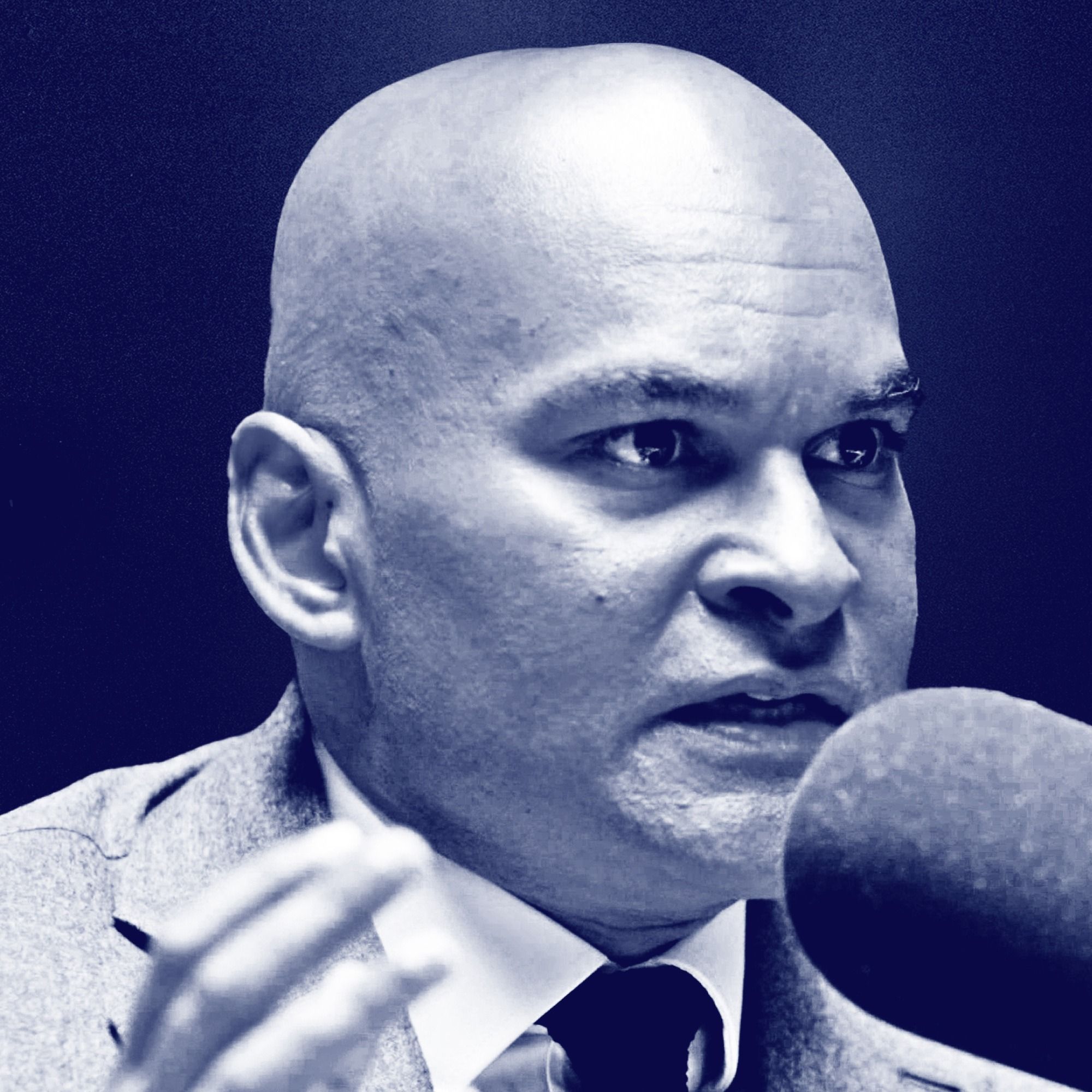
A Mind-Bending Conversation with Peter Thiel
The billionaire Peter Thiel is unimpressed with our pace of innovation. In this episode, he critiques artificial intelligence, longevity science and space travel — and warns that our lack of progress could lead to catastrophic outcomes, including the emergence of the Antichrist. 01:19 - What does stagnation mean in 2025?06:30 - Peter Thiel's case for more progress and innovation11:30 - Does taking more scientific risk include life extension?15:14 - Peter Thiel's political history18:34 - Did Trump live up to Thiel's expectations?25:10 - Does Elon Musk still want to go to Mars?28:09 - How Thiel defines A.I.33:20 - Is A.I. Too Modest An Ambition?35:23 - How will the human race evolve? Should it?41:53 - Thiel's critique of Silicon Valley43:40 - Who is the real Antichrist?(A full transcript of this episode is available on the Times website.) Thoughts? Email us at interestingtimes@nytimes.com. Subscribe today at nytimes.com/podcasts or on Apple Podcasts and Spotify. You can also subscribe via your favorite podcast app here https://www.nytimes.com/activate-access/audio?source=podcatcher. For more podcasts and narrated articles, download The New York Times app at nytimes.com/app. Hosted by Simplecast, an AdsWizz company. See pcm.adswizz.com for information about our collection and use of personal data for advertising.
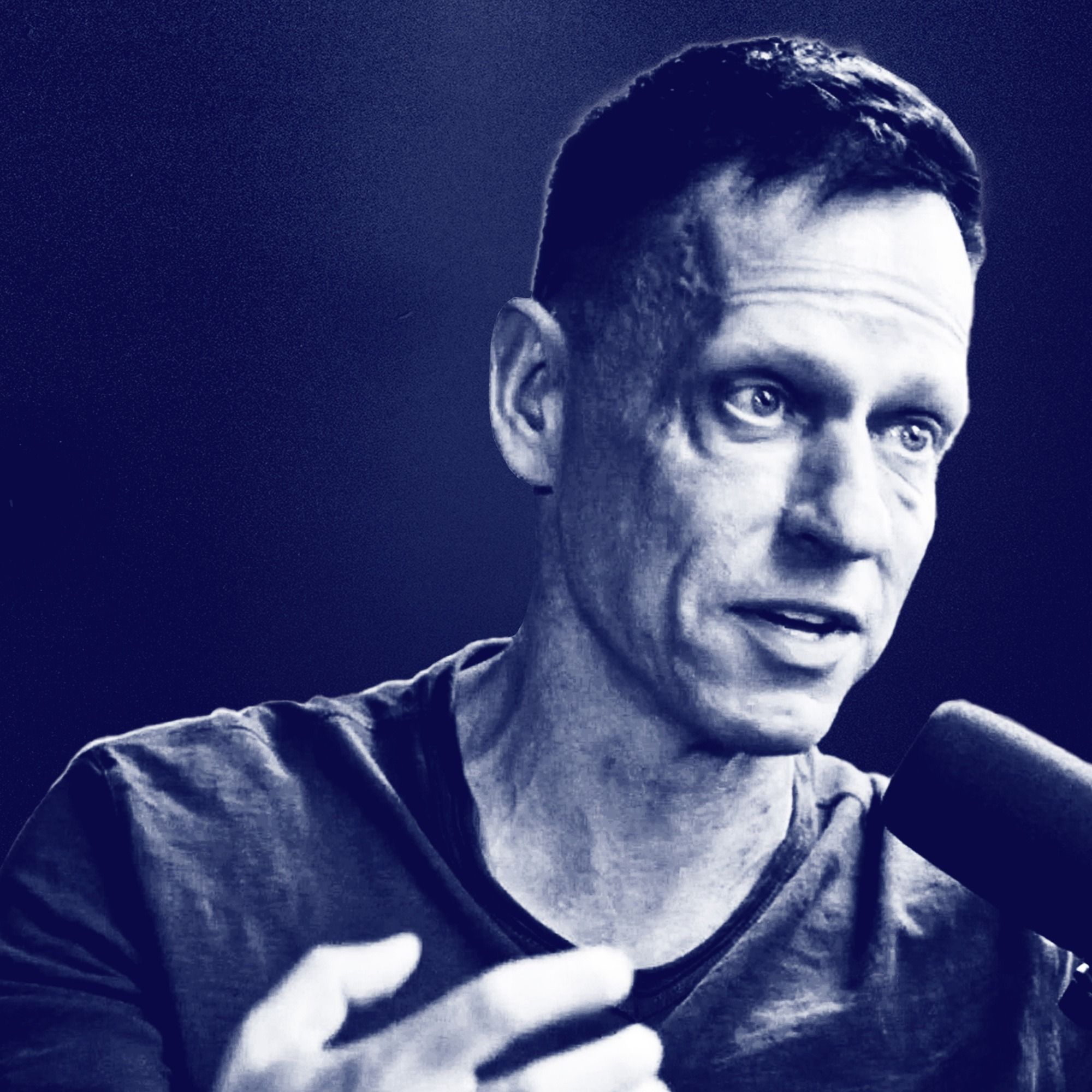
The Progressive Regulator Winning Over the Populist Right
Is the key to freedom a life without Amazon? This week, Ross talks to Lina Khan, former Chair of the Federal Trade Commission about how unchecked corporate power has limited choice in our day-to-day lives, and how her fight against Big Tech unites left and right. 02:41 - What’s wrong with big business?09:27 - The political costs of corporate consolidation11:39 - How the 2008 financial crisis shaped Lina Khan's philosophy17:49 - The antitrust consensus from Reagan to Obama21:54 - How the left and right align against big business 26:12 - Khan's wins and losses at the FTC 36:53 - Is the Trump administration embracing or rejecting Khan's vision?42:32 - Is anti-monopoly policy the solution to our economic problems?48:38 - Can Big Tech be broken up?(A full transcript of this episode is available on the Times website.) Thoughts? Email us at interestingtimes@nytimes.com. Subscribe today at nytimes.com/podcasts or on Apple Podcasts and Spotify. You can also subscribe via your favorite podcast app here https://www.nytimes.com/activate-access/audio?source=podcatcher. For more podcasts and narrated articles, download The New York Times app at nytimes.com/app. Hosted by Simplecast, an AdsWizz company. See pcm.adswizz.com for information about our collection and use of personal data for advertising.
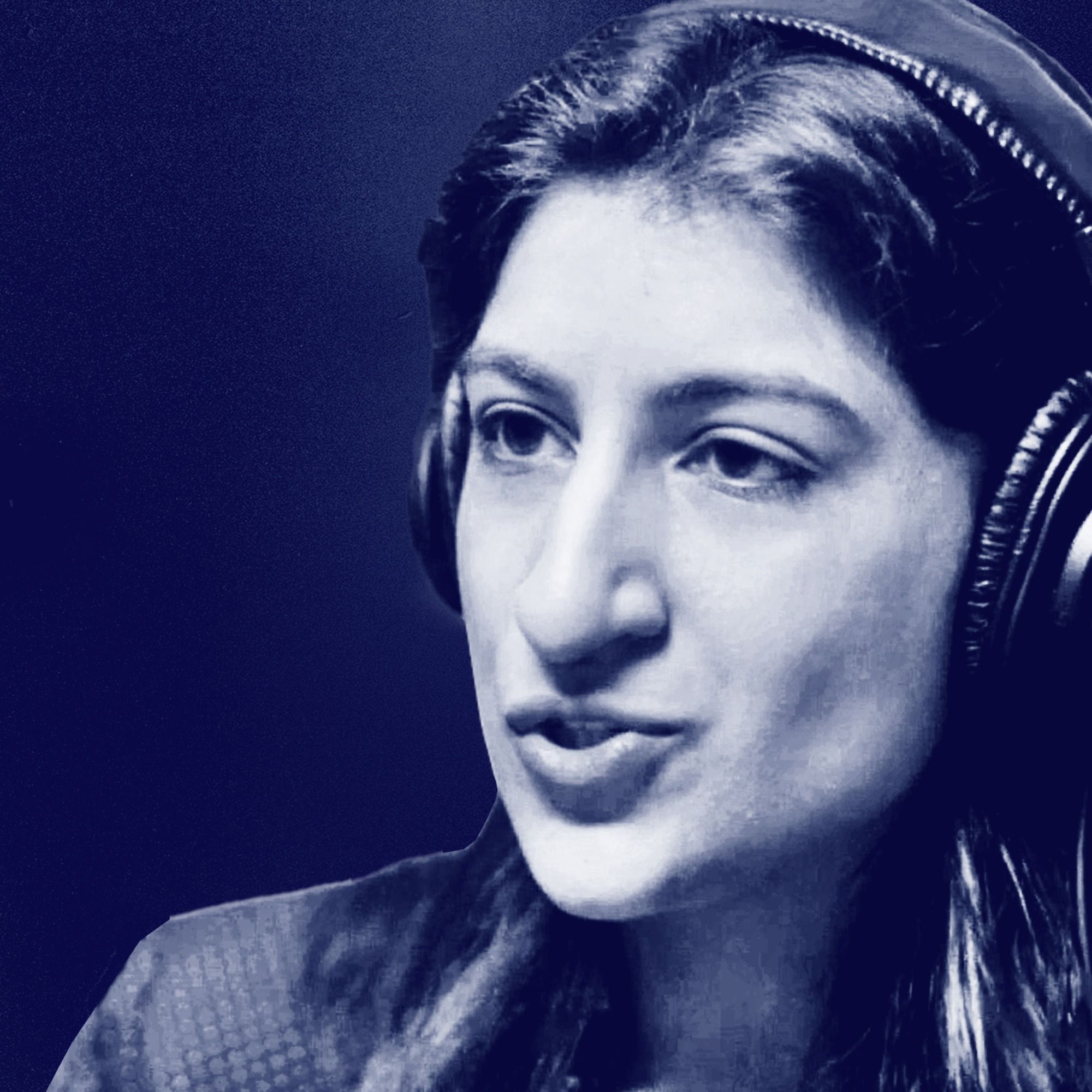
Trump’s Future Depends on His Immigration Crackdown
Has immigration become the new litmus test for the Republican Party? In this episode, Ross talks to Matthew Continetti, the author of “The Right: The Hundred-Year War for American Conservatism,” about the party’s shifting coalition, the defining role of immigration and how today’s right echoes its past. 01:50 - What the Elon experiment (and fallout) tells us about the Republican Party06:55 - Is there a tech right beyond DOGE?10:09 - Is the “new right” really all that new?18:16 - Where Trump’s agenda fits within the larger conservative story25:16 - “Immigration is the biggest issue of our time”28:39 - How border control will define conservatism around the world34:05 - Is Silicon Valley out of step with Trump's immigration crackdown?39:43 - Will Trump's ideas outlast Trump?(A full transcript of this episode is available on the Times website.) Thoughts? Email us at interestingtimes@nytimes.com. Subscribe today at nytimes.com/podcasts or on Apple Podcasts and Spotify. You can also subscribe via your favorite podcast app here https://www.nytimes.com/activate-access/audio?source=podcatcher. For more podcasts and narrated articles, download The New York Times app at nytimes.com/app. Hosted by Simplecast, an AdsWizz company. See pcm.adswizz.com for information about our collection and use of personal data for advertising.
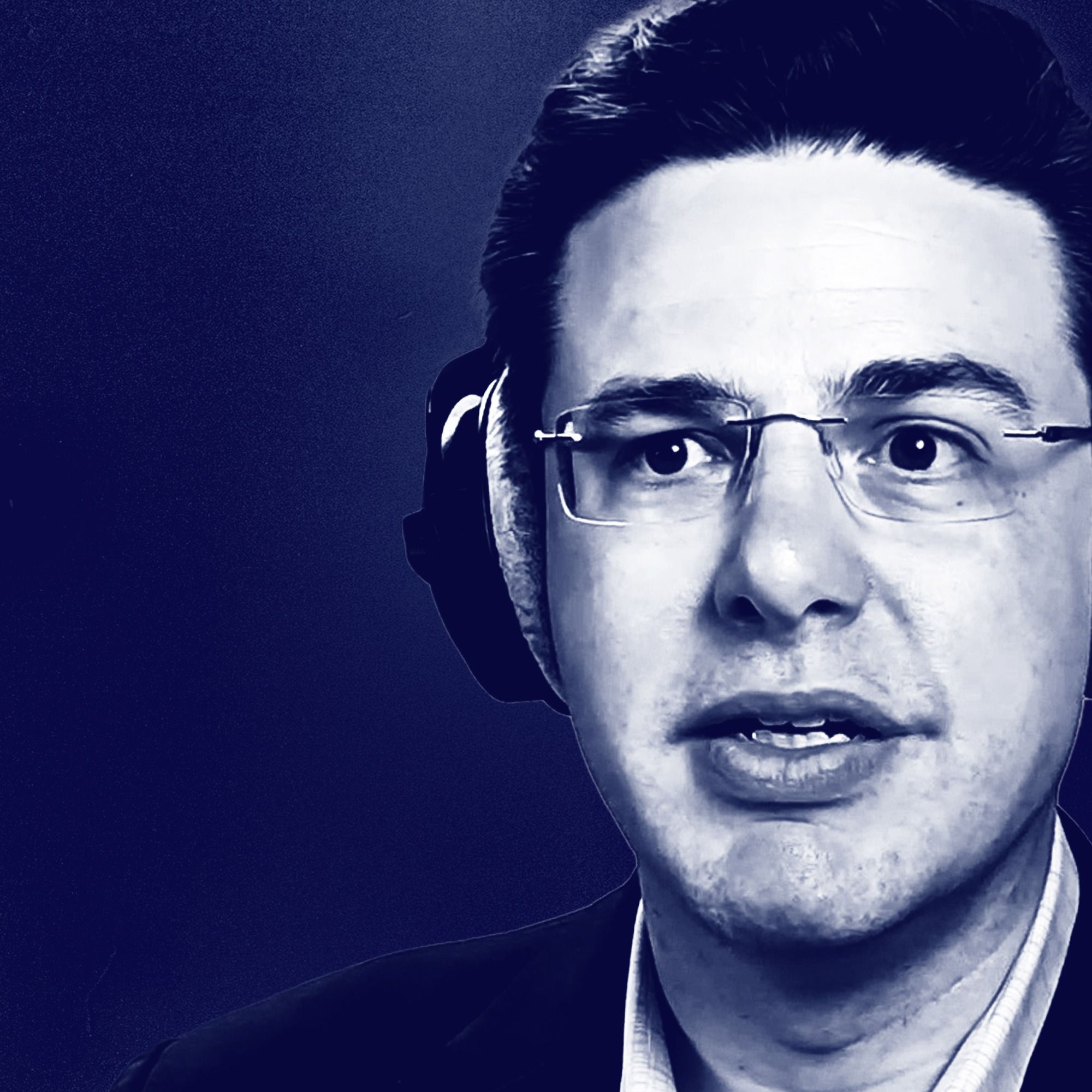
What Makes Art ‘Left Wing’?
Does Hollywood have anything interesting left to say? In a world where franchises dominate and grown-up movies have fallen by the wayside, Ross talks to the showrunner Tony Gilroy, whose “Star Wars” spinoff “Andor” has, according to Ross, succeeded in being both original and smartly political in a Hollywood that is often neither. 03:04 - The political world of ”Andor”08:36 - Tony Gilroy's syllabus for “Andor”10:40 - Is “Andor” a left-wing show?17:07 - What makes Hollywood progressive or liberal?24:22 - Debating the politics of “Michael Clayton”29:42 - Why aren't there more movies for grown-ups?32:56 - “There are no movie stars anymore.”35:55 - How A.I. changing the movie business39:28 - Tony Gilroy's advice for future filmmakers(A full transcript of this episode is available on the Times website.) Thoughts? Email us at interestingtimes@nytimes.com. Subscribe today at nytimes.com/podcasts or on Apple Podcasts and Spotify. You can also subscribe via your favorite podcast app here https://www.nytimes.com/activate-access/audio?source=podcatcher. For more podcasts and narrated articles, download The New York Times app at nytimes.com/app. Hosted by Simplecast, an AdsWizz company. See pcm.adswizz.com for information about our collection and use of personal data for advertising.

How the iPhone Drove Men and Women Apart
What would make you want to have more children? This week on “Interesting Times,” Ross Douthat speaks with Dr. Alice Evans, a social scientist who is as concerned about the global decline in fertility as he is. The two discuss why this isn’t just a gender issue — it’s “a solitude issue” – and whether there’s a way to bring relationships back. 02:03 - What are the stakes of declining fertility?06:41 - Alice's master theory for why birth rates are falling09:04 - There are too many single people10:27 - We can thank technology for the coupling crisis12:58 - The digital segregation of men and women16:31 - Men have less to offer these days20:11 - What can bring the sexes back together24:31 - Could Hollywood help fix the problem?25:46 - Can the government incentivize people to have babies?27:30 - What role does religion play in all this?28:59 - The role of IVF40:50 - Does the fantasy of youth impact the numbers?43:43 - The world in 2080...(A full transcript of this episode is available on the Times website.) Thoughts? Email us at interestingtimes@nytimes.com. Subscribe today at nytimes.com/podcasts or on Apple Podcasts and Spotify. You can also subscribe via your favorite podcast app here https://www.nytimes.com/activate-access/audio?source=podcatcher. For more podcasts and narrated articles, download The New York Times app at nytimes.com/app. Hosted by Simplecast, an AdsWizz company. See pcm.adswizz.com for information about our collection and use of personal data for advertising.

JD Vance on His Faith and Trump’s Most Controversial Policies
On this episode of “Interesting Times,” Ross Douthat interviews Vice President JD Vance about the Trump administration’s deportations, the tariff backlash and how Vance’s faith influences his politics. 01:49 - How faith shapes JD Vance’s politics04:26 - ‘Papal interventions in politics’14:44 - How will the Trump administration measure success on immigration?21:22 - ‘The courts are trying to overturn the will of the American people’23:55 - Are migrants really at war against the US?28:48 - The parallels between the War on Terror and Trump's deportation policies40:29 - What does a successful trade policy look like?48:10 - The "big, beautiful bill"58:57 - Does the Trump administration expect the AI revolution will take jobs?54:05 - What worries Vance about AI58:33 - JD Vance's message to shocked Trump voters(A full transcript of this episode is available on the Times website.) Thoughts? Email us at interestingtimes@nytimes.com. Subscribe today at nytimes.com/podcasts or on Apple Podcasts and Spotify. You can also subscribe via your favorite podcast app here https://www.nytimes.com/activate-access/audio?source=podcatcher. For more podcasts and narrated articles, download The New York Times app at nytimes.com/app. Hosted by Simplecast, an AdsWizz company. See pcm.adswizz.com for information about our collection and use of personal data for advertising.
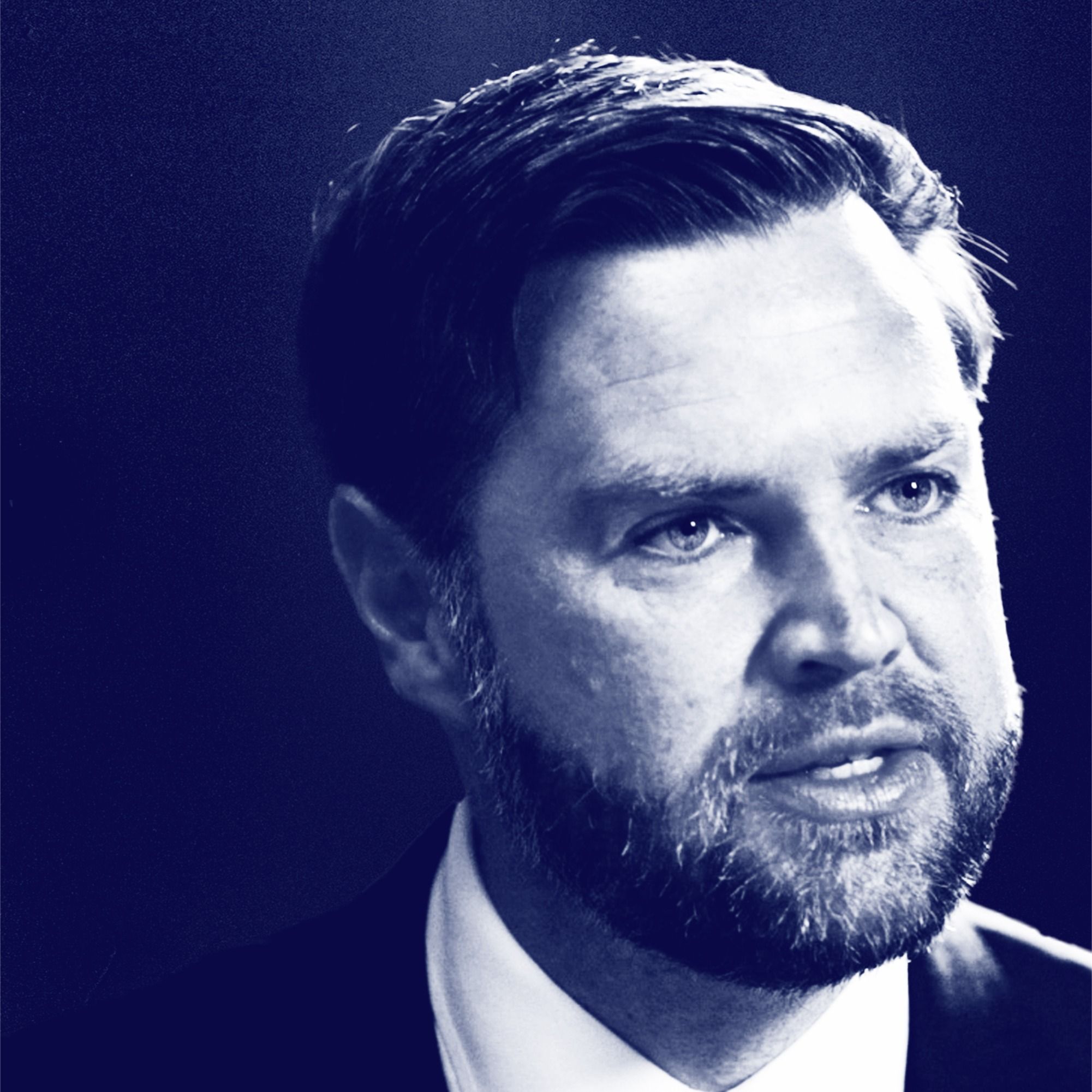
An Interview With the Herald of the Apocalypse
Is artificial intelligence about to take your job? According to Daniel Kokotajlo, the executive director of the A.I. Futures Project, that should be the least of your worries. Kokotajlo was once a researcher for OpenAI, but left after losing confidence in the company’s commitment to A.I. safety. This week, he joins Ross to talk about “AI 2027,” a series of predictions and warnings about the risks A.I. poses to humanity in the coming years, from radically transforming the economy to developing armies of robots. 03:59 - What effect could AI have on jobs?06:45 - But wait, how does this make society richer?10:08 - Robot plumbers and electricians14:53 - The geopolitical stakes18:58 - AI’s honesty problem22:43 - The fork in the road27:55 - The best case scenario29:38 - The power structure in an AI-dominated world32:32 - What AI leaders think about this power structure38:30 - AI's hallucinations and limitations43:45 - Theories of AI consciousness47:05 - Is AI consciousness inevitable?50:59 - Humanity in an AI-dominated world(A full transcript of this episode is available on the Times website.) Thoughts? Email us at interestingtimes@nytimes.com. Subscribe today at nytimes.com/podcasts or on Apple Podcasts and Spotify. You can also subscribe via your favorite podcast app here https://www.nytimes.com/activate-access/audio?source=podcatcher. For more podcasts and narrated articles, download The New York Times app at nytimes.com/app. Hosted by Simplecast, an AdsWizz company. See pcm.adswizz.com for information about our collection and use of personal data for advertising.

The Democratic Senator Taking Cues From Trumpism
Democrats are stumbling — badly. While the Trump administration redefines the limits of executive overreach, the Democratic party remains at odds over how to — even whether to — respond. But Senator Chris Murphy of Connecticut has a plan for beating Republicans in 2026, and it involves taking a cue from President Trump. He shares it with Ross Douthat on this episode of Interesting Times. 02:07 - The First 100 Days for Trump and the Democrats04:06 - The Threat to Democracy Wasn’t Enough Then or Now.06:49 - How Dems Fight Trump13:41 - Where Chris Murphy Can Agree With the Populist Right16:38 - Is Connecticut a Model of What is Wrong with Democrats?25:54 - The Spiritual Crisis in American Life27:56 - The Problem with Big Tech33:45 - How Do Democrats (And Murphy) Talk About Religion? Should They?45:35 - Is Trump Really Running An Oligarchy?50:34 - Does the Democratic Party Need a Bigger Tent?53:54 - A Need for a National Consensus on Immigration57:09 - “A Democracy Dies Without a High Stakes Confrontation”(A full transcript of this episode is available on the Times website.) Thoughts? Email us at interestingtimes@nytimes.com. Subscribe today at nytimes.com/podcasts or on Apple Podcasts and Spotify. You can also subscribe via your favorite podcast app here https://www.nytimes.com/activate-access/audio?source=podcatcher. For more podcasts and narrated articles, download The New York Times app at nytimes.com/app. Hosted by Simplecast, an AdsWizz company. See pcm.adswizz.com for information about our collection and use of personal data for advertising.
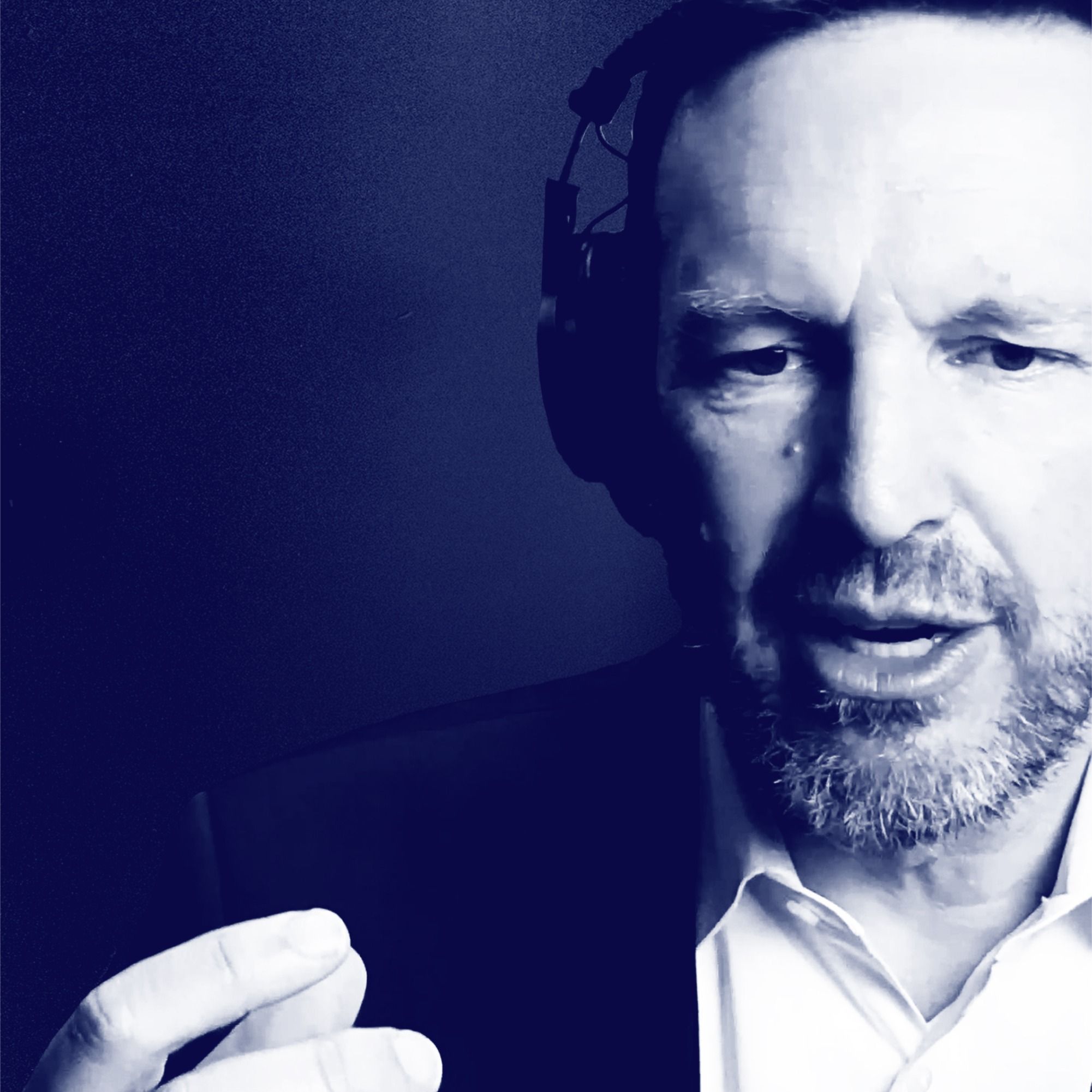
The New Culture of the Right: Vital, Masculine and Intentionally Offensive
The Trump era is ushering in a new age of right wing counterculture, one defined by masculinity and transgression. In this episode of Interesting Times, Ross speaks with Jonathan Keeperman, the founder of Passage Press, about the influence of an edgy, reactionary, right-wing “vibe shift” on American politics and culture. 2:09 - Jonathan Keeperman’s Lomez days5:25 - 2014: An inflection point in American culture?7:40 - The emergence of a “conservative counter elite”9:41 - The creation of a right wing counterweight to the dominant left12:32 - What makes something “conservative art”?15:18 - Are David Lynch films right wing art? Is Girls?18:11 - Is there such a thing as good left wing art?19:32 - Right wing counterculture’s obsession with “vitalism”22:56 - Longhouse culture: Is the “over feminization” of society making America weaker?27:55 - Is the longhouse argument just a “long male whine”?30:41 - Is right wing counterculture anti-Christian?35:48 - Trump as mythic hero43:31 - What is the function of racism in right wing counterculture?53:50 - Are racist means transgressive or just racist?1:05:43 - Will the rightward vibe shift show up in pop culture?1:07:37 - Why every high school senior should read “Moby Dick” and watch “No Country for Old Men”(A full transcript of this episode is available on the Times website.) Thoughts? Email us at interestingtimes@nytimes.com. Subscribe today at nytimes.com/podcasts or on Apple Podcasts and Spotify. You can also subscribe via your favorite podcast app here https://www.nytimes.com/activate-access/audio?source=podcatcher. For more podcasts and narrated articles, download The New York Times app at nytimes.com/app. Hosted by Simplecast, an AdsWizz company. See pcm.adswizz.com for information about our collection and use of personal data for advertising.

Can the Catholic Church Quit the Culture Wars?
On this episode of “Interesting Times,” Ross Douthat is joined by the Rev. James Martin, a Jesuit priest and an editor of America Magazine, to reflect on the legacy of Pope Francis and the challenges facing the next papacy. 02:20 The First Jesuit Pope05:23 Google Translate and Exchanging Emails 06:05 The Visual Element of Francis’s Legacy07:48 The Concrete Changes Made16:19 Christian Sexual Ethics25:22 The Church in the Modern World27:14 What Kind of Leader Will the Next Pope Be?31:57 The Latin Mass Controversy34:54 What Draws People to Christianity?39:21 What Holds Such a Diverse Church Together?43:09 The Influence of the Pope and the Hierarchy 46:41 A Renewed Interest in Religion 48:30 The Church as a Field Hospital 49:13 What Father Martin Hopes to See in the Next Pope 49:59 Where Should the New Pope Go? 52:27 Who Will Be the Next Pope?(A full transcript of this episode is available on the Times website.) Thoughts? Email us at interestingtimes@nytimes.com. Subscribe today at nytimes.com/podcasts or on Apple Podcasts and Spotify. You can also subscribe via your favorite podcast app here https://www.nytimes.com/activate-access/audio?source=podcatcher. For more podcasts and narrated articles, download The New York Times app at nytimes.com/app. Hosted by Simplecast, an AdsWizz company. See pcm.adswizz.com for information about our collection and use of personal data for advertising.

What if There’s No Way to Stop Trump’s Approach to Power?
President Trump may forever reshape the boundaries of executive power. This week on “Interesting Times,” Ross and Jack Goldsmith, who was the head of the White House’s Office of Legal Counsel under President George W. Bush, discuss which cases are most likely to win in the courts and permanently expand the executive branch — for better or worse. 00:02:03 Donald Trump’s “moonshot on executive power”00:04:16 What has surprised Goldsmith the most00:06:57 Are we in a constitutional crisis?00:08:59 Alien Enemies Act00:14:02 The case of Kilmar Abrego Garcia00:25:23 Godel’s loophole and Supreme Court enforcement30:10 Trump’s firings of federal employees and restructuring of U.S.A.I.D.36:11 Trump’s power over congressionally appropriated funding41:29 Obama v. Trump’s discretion on enforcing laws passed by Congress43:03 The TikTok case45:46 Lawsuit over Trump’s tariffs51:57 How the Supreme Court (maybe) thinks about picking its battles54:24 Worst case scenarios56:59 What the Supreme Court can do if the Trump administration does not comply01:01:32 What a Trump executive power revolution could look like in 2028 and beyond01:04:39 If Democrats win in 2028, what happens?(A full transcript of this episode is available on the Times website.) Thoughts? Email us at interestingtimes@nytimes.com. Subscribe today at nytimes.com/podcasts or on Apple Podcasts and Spotify. You can also subscribe via your favorite podcast app here https://www.nytimes.com/activate-access/audio?source=podcatcher. For more podcasts and narrated articles, download The New York Times app at nytimes.com/app. Hosted by Simplecast, an AdsWizz company. See pcm.adswizz.com for information about our collection and use of personal data for advertising.

This Instability May Be Worth It. Here's Why.
Is the short-term economic pain of President Trump’s unpredictable approach to tariffs a reasonable price to pay for a more resilient America? Mr. Trump appears to think so, and so does Oren Cass — sort of. On the first episode of “Interesting Times,” the founder and chief economist of the think tank American Compass joins Ross Douthat to discuss and debate the Trump administration’s drastic trade war. (A full transcript of this episode is available on the Times website.) Thoughts? Email us at interestingtimes@nytimes.com. Subscribe today at nytimes.com/podcasts or on Apple Podcasts and Spotify. You can also subscribe via your favorite podcast app here https://www.nytimes.com/activate-access/audio?source=podcatcher. For more podcasts and narrated articles, download The New York Times app at nytimes.com/app. Hosted by Simplecast, an AdsWizz company. See pcm.adswizz.com for information about our collection and use of personal data for advertising.

Introducing ‘Interesting Times’
There’s a saying that comes to mind these days: May you live in interesting times. It’s understood to be a curse, even though it sounds like a blessing. “Interesting Times With Ross Douthat” is a new weekly podcast from New York Times Opinion. Every Thursday, he will map the new world order through interviews and conversations. Answering questions like: What does our new political era really look like? What is the future of democracy around the world, with American empire in retreat? What happens to movies and books — all of culture — in our digital and A.I.-dominated age? Thoughts? Email us at interestingtimes@nytimes.com. Subscribe today at nytimes.com/podcasts or on Apple Podcasts and Spotify. You can also subscribe via your favorite podcast app here https://www.nytimes.com/activate-access/audio?source=podcatcher. For more podcasts and narrated articles, download The New York Times app at nytimes.com/app. Hosted by Simplecast, an AdsWizz company. See pcm.adswizz.com for information about our collection and use of personal data for advertising.
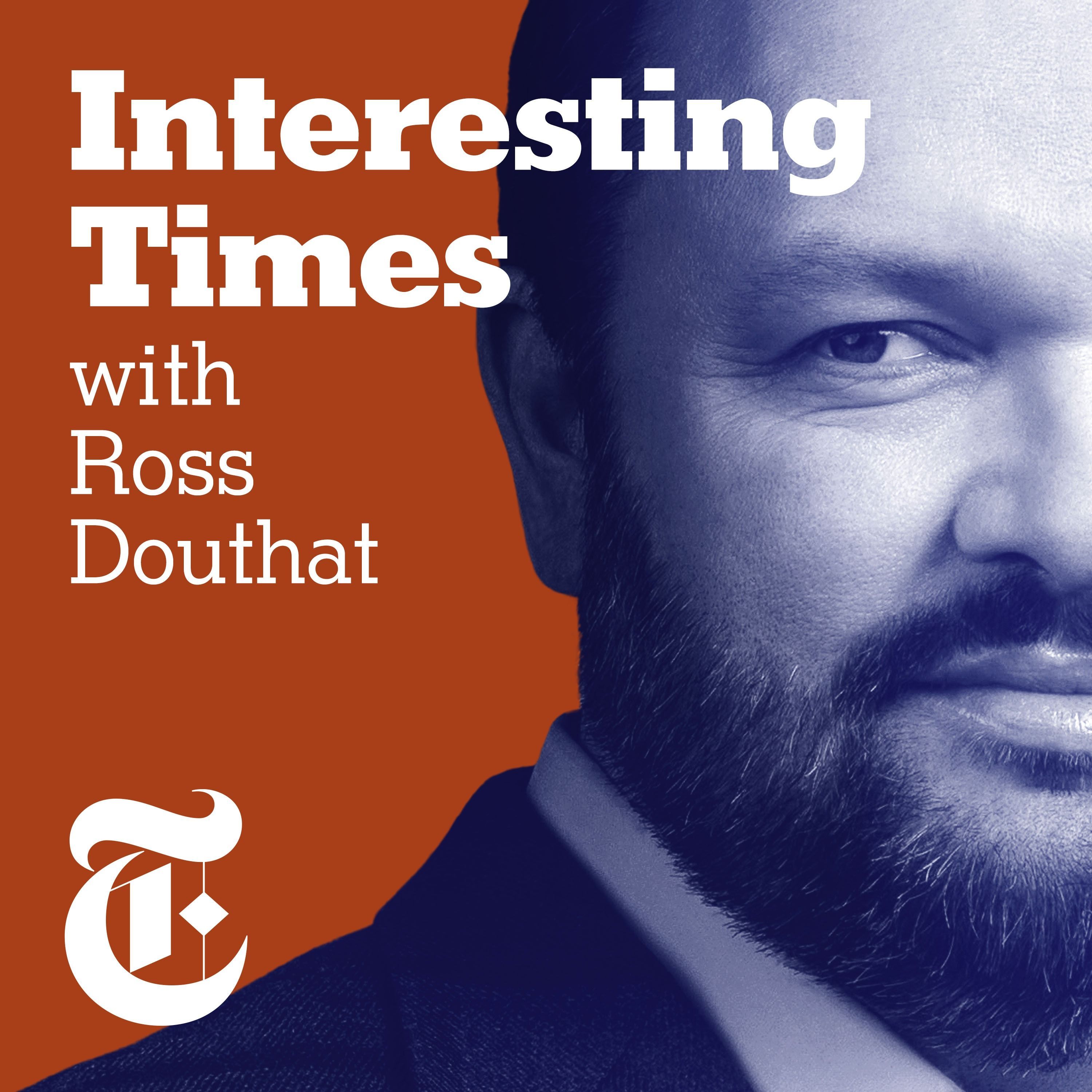
How Democrats Drove Silicon Valley Into Trump’s Arms
The tech investor Marc Andreessen and his fellow Silicon Valley giant Elon Musk weren’t always the Donald Trump supporters they are today. In this episode, Ross asks Andreessen, a founder of the venture capital firm Andreessen Horowitz, about what led to Silicon Valley’s rightward shift and the new agenda of the tech-right faction. Editors’ note: This episode originally aired on the “Matter of Opinion” podcast on Jan. 17, 2025. (A full transcript of this episode is available on the Times website.) Thoughts? Email us at interestingtimes@nytimes.com. Subscribe today at nytimes.com/podcasts or on Apple Podcasts and Spotify. You can also subscribe via your favorite podcast app here https://www.nytimes.com/activate-access/audio?source=podcatcher. For more podcasts and narrated articles, download The New York Times app at nytimes.com/app. Hosted by Simplecast, an AdsWizz company. See pcm.adswizz.com for information about our collection and use of personal data for advertising.
Steve Bannon on ‘Broligarchs’ vs. Populism
In this conversation, Ross talks to Steve Bannon, the chief strategist from Donald Trump’s first term and part of the original MAGA movement. Despite his clashes with new factions emerging in the Republican Party, Bannon argues that Trump is still central to advancing a populist agenda. Editors’ note: This episode originally aired on the “Matter of Opinion” podcast on Jan. 31, 2025. (A full transcript of this episode is available on the Times website.) Thoughts? Email us at interestingtimes@nytimes.com. Subscribe today at nytimes.com/podcasts or on Apple Podcasts and Spotify. You can also subscribe via your favorite podcast app here https://www.nytimes.com/activate-access/audio?source=podcatcher. For more podcasts and narrated articles, download The New York Times app at nytimes.com/app. Hosted by Simplecast, an AdsWizz company. See pcm.adswizz.com for information about our collection and use of personal data for advertising.
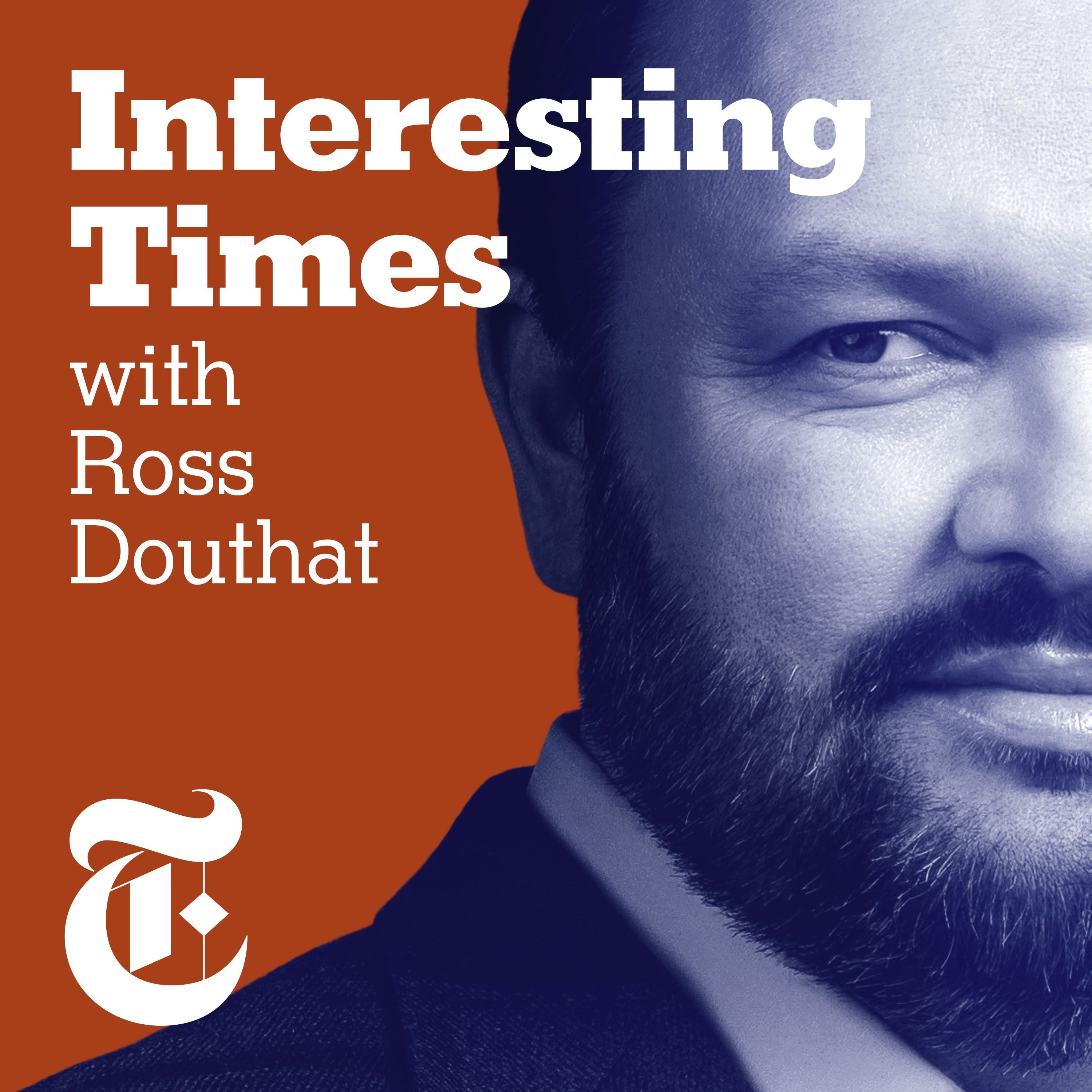
The Anti-D.E.I. Crusader Who Wants to Dismantle the Department of Education
Christopher Rufo brought the term "critical race theory" into mainstream conversation. Now, the anti-DEI activist is bringing his critiques of education to the White House. In this episode, Ross explores Rufo's mission to make universities feel "existential terror." Editors’ note: This episode originally aired on the “Matter of Opinion” podcast on Mar. 7, 2025. (A full transcript of this episode is available on the Times website.) Thoughts? Email us at interestingtimes@nytimes.com. Subscribe today at nytimes.com/podcasts or on Apple Podcasts and Spotify. You can also subscribe via your favorite podcast app here https://www.nytimes.com/activate-access/audio?source=podcatcher. For more podcasts and narrated articles, download The New York Times app at nytimes.com/app. Hosted by Simplecast, an AdsWizz company. See pcm.adswizz.com for information about our collection and use of personal data for advertising.
